Discover Leveraging Thought Leadership
Leveraging Thought Leadership

Leveraging Thought Leadership
Author: Thought Leadership Leverage
Subscribed: 149Played: 5,725Subscribe
Share
Copyright © 2018 - 2024 Thought Leadership Leverage. All Rights Reserved.
Description
Welcome to the Leveraging Thought Leadership podcast, a beacon illuminating the paths and possibilities of thought leadership. With your guides, Peter Winick and Bill Sherman, we will embark on a journey into a captivating world where ideas converge with strategy and insight.
Where will thought leadership take you?
In each episode, we engage with thought leaders from diverse backgrounds. Whether it's professional keynote speaking, writing your own thought leadership book, investigating the niche expertise of specialized consultants, or crossing mental swords with distinguished academics, our guests collectively paint a vivid mosaic of thought leadership's multifaceted potential.
Through nuanced perspectives and rich experience, our talented co-hosts aim to offer you views of the ways independent thought leaders navigate success, elevate talent, and change company culture – while simultaneously examining how organizations harness the power of thought leadership to catalyze innovation and nurture sustainable growth.
Peter Winick is your guide through the realm of independent thought leadership. For the past two decades, he has helped individuals and organizations build and grow revenue streams through designing and growing their thought leadership platforms as well as acting as a guide and advisor for increasing business to business sales of thought leadership products. Peter is the Founder and CEO of Thought Leadership Leverage. His clients come from a diverse set of backgrounds and specialties. They include New York Times bestselling business book authors, members of the Speakers' Hall of Fame, recipients of the Thinkers50 award, CEOs of public and privately held companies, and academics at prestigious institutions such as Yale, Wharton, Dartmouth, and London School of Business.
With a keen eye for detail, he delves into the intricacies of crafting personal brands, fostering genuine engagement with audiences, and expertly monetizing one's expertise. From the artistry of crafting keynote speeches that resonate with audiences to the strategic deployment of bestselling books as conduits for inspiration and insight, Peter's guests offer a treasure trove of strategies for creating value and impact and driving revenue through thought leadership.
Bill Sherman specializes in the exploration of organizational thought leadership. He examines how companies conceive, curate, and deploy thought leadership initiatives, and how those initiatives benefit the orgs and the people who work within them. Bill listens to the stories and advice of industry leaders and their triumphs within the competitive business landscape. Whether through the dissemination of white papers that shape industry discourse, webinars that educate and engage, or insightful executive blogs that offer thought leadership at the highest echelons of corporate governance, Bill's guests provide illuminating perspectives on the evolution of organizational thought leadership and its pivotal role in shaping industry paradigms and perceptions.
Bill concentrates on organizational consulting and business expertise, investigating organizational thought leadership and its effects, from instructional design and learning product development to marketing strategy and execution, to organizational development and transformational consulting. He enjoys working with business leaders, speakers, authors, academics, and other consultants, connecting their ideas organizational platforms and enterprise-ready product development.
As the series unfolds, Peter and Bill will lead us through a nuanced exploration of the latest trends and advancements in thought leadership. From the transformative impact of technology on communication and collaboration to the evolving preferences of consumers in an increasingly digital marketplace, they will dissect the shifting landscape with precision and insight. Moreover, they will shine a spotlight on emerging modalities that are reshaping the contours of thought leadership, from the ascendance of virtual events as a cornerstone of engagement to the growing influence of social media platforms as conduits for thought dissemination and audience interaction. Through their discerning analysis, they will reveal how thought leaders can adeptly harness these trends to amplify their reach, captivate new audiences, and maximize their influence in an ever-evolving business environment.
Whether you find yourself at the height of your career as a seasoned thought leader, or whether you stand at the threshold of possibility as an aspiring entrepreneur, the Leveraging Thought Leadership podcast offers an enriching voyage of discovery.
Join us as we unravel the enigmatic secrets to success in the vibrant realm of thought leadership, where ideas have the power to shape perceptions, drive change, and inspire action. Together, let us explore how you, too, can engineer value, evoke impact, and cultivate revenue through the sheer power of your ideas and expertise.
Welcome aboard.
Where will thought leadership take you?
In each episode, we engage with thought leaders from diverse backgrounds. Whether it's professional keynote speaking, writing your own thought leadership book, investigating the niche expertise of specialized consultants, or crossing mental swords with distinguished academics, our guests collectively paint a vivid mosaic of thought leadership's multifaceted potential.
Through nuanced perspectives and rich experience, our talented co-hosts aim to offer you views of the ways independent thought leaders navigate success, elevate talent, and change company culture – while simultaneously examining how organizations harness the power of thought leadership to catalyze innovation and nurture sustainable growth.
Peter Winick is your guide through the realm of independent thought leadership. For the past two decades, he has helped individuals and organizations build and grow revenue streams through designing and growing their thought leadership platforms as well as acting as a guide and advisor for increasing business to business sales of thought leadership products. Peter is the Founder and CEO of Thought Leadership Leverage. His clients come from a diverse set of backgrounds and specialties. They include New York Times bestselling business book authors, members of the Speakers' Hall of Fame, recipients of the Thinkers50 award, CEOs of public and privately held companies, and academics at prestigious institutions such as Yale, Wharton, Dartmouth, and London School of Business.
With a keen eye for detail, he delves into the intricacies of crafting personal brands, fostering genuine engagement with audiences, and expertly monetizing one's expertise. From the artistry of crafting keynote speeches that resonate with audiences to the strategic deployment of bestselling books as conduits for inspiration and insight, Peter's guests offer a treasure trove of strategies for creating value and impact and driving revenue through thought leadership.
Bill Sherman specializes in the exploration of organizational thought leadership. He examines how companies conceive, curate, and deploy thought leadership initiatives, and how those initiatives benefit the orgs and the people who work within them. Bill listens to the stories and advice of industry leaders and their triumphs within the competitive business landscape. Whether through the dissemination of white papers that shape industry discourse, webinars that educate and engage, or insightful executive blogs that offer thought leadership at the highest echelons of corporate governance, Bill's guests provide illuminating perspectives on the evolution of organizational thought leadership and its pivotal role in shaping industry paradigms and perceptions.
Bill concentrates on organizational consulting and business expertise, investigating organizational thought leadership and its effects, from instructional design and learning product development to marketing strategy and execution, to organizational development and transformational consulting. He enjoys working with business leaders, speakers, authors, academics, and other consultants, connecting their ideas organizational platforms and enterprise-ready product development.
As the series unfolds, Peter and Bill will lead us through a nuanced exploration of the latest trends and advancements in thought leadership. From the transformative impact of technology on communication and collaboration to the evolving preferences of consumers in an increasingly digital marketplace, they will dissect the shifting landscape with precision and insight. Moreover, they will shine a spotlight on emerging modalities that are reshaping the contours of thought leadership, from the ascendance of virtual events as a cornerstone of engagement to the growing influence of social media platforms as conduits for thought dissemination and audience interaction. Through their discerning analysis, they will reveal how thought leaders can adeptly harness these trends to amplify their reach, captivate new audiences, and maximize their influence in an ever-evolving business environment.
Whether you find yourself at the height of your career as a seasoned thought leader, or whether you stand at the threshold of possibility as an aspiring entrepreneur, the Leveraging Thought Leadership podcast offers an enriching voyage of discovery.
Join us as we unravel the enigmatic secrets to success in the vibrant realm of thought leadership, where ideas have the power to shape perceptions, drive change, and inspire action. Together, let us explore how you, too, can engineer value, evoke impact, and cultivate revenue through the sheer power of your ideas and expertise.
Welcome aboard.
689 Episodes
Reverse
When businesses talk about "making a pivot," it's often thought of as something that must happen quickly and with great impact. The reality is – a successful pivot is often anything but quick, and true impact can be difficult to implement. Who better to discuss bringing big changes to organizations than the "Pivot Catalyst," Lori Michele Leavitt! Lori is the founder and President of Abridge Corp, as well as an accomplished coach, consultant, trainer, speaker, and author of The Pivot: Orchestrating Extraordinary Business Momentum. Lori shares her insights on bringing about large-scale business changes, from building momentum to bringing people on-board with the shift in mindset. If you want to make a pivot, the leadership of the organization needs to encourage the adoption of many small changes by many people over time - not demand massive changes all at once! Momentum and buy-in are both key to any lasting change. Lori has guided many businesses and leaders through this kind of process, and has learned a great deal about organizations undergoing large-scale change. She shares how she turned her processes into a book, and later, software that she continues to iterate. She's moved the needle on management software, building a leadership operating system called Aligned Momentum. Codifying your message and process into a book is complicated, but it's another step to then turn your content into software! Lori shares insights into the process she went through with her content, sharing her insights into the future of consulting software as it continues to evolve. Three Key Takeaways: * Helping an organization successfully pivot starts with getting the cultural decision-maker on board with change. * Being the smartest person in the room isn't the best way to have a lasting impact as a coach. * Change often happens faster in a safe space, and it's good to have peers and allies to help identify your blind spots in the process of organizing and driving change.
What if "thriving" isn't a soft concept—but a measurable performance advantage? In this episode, Peter Winick sits down with Jon Rosemberg, Founding Partner of Anther and author of "A Guide to Thriving: The Science Behind Breaking Old Patterns, Reclaiming Your Agency, and Finding Meaning", to break down what thriving really is, what it is not, and why leaders should care right now. Jon draws a sharp line between thriving and "success." Success can be the big house, the title, the milestones. Thriving is different. It's a state where you're calm, connected to others, and able to create. It's when you can access the best of your thinking and show up as yourself—not as a reactive version of yourself. They explore the practical business implications. Jon frames thriving as the condition that makes proactive leadership possible. Less reactivity. More intentionality. Better decisions. He also positions "flow" as a subset of thriving—useful, but not the whole story. Then the conversation gets strategic. Jon introduces agency as the lever that moves people from survival mode to thriving: the capacity to make intentional choices. And he connects it directly to strategy. Real strategy is not doing everything. It's making clear choices—and just as importantly, choosing what you will not do. For leaders building teams, Jon highlights the shift from productive value to relational value. Your job stops being "do the work." Your job becomes "enable others to do their best work." When teams are thriving, performance rises. When organizations treat well-being as a KPI, it becomes a competitive advantage—not a perk. Finally, Jon reframes thriving as a spiral, not a finish line. Markets change. Crises hit. AI reshapes work. The goal isn't to "arrive" at thriving. The goal is to build the capacity to return to it faster—and lead through uncertainty with more clarity, nuance, and adaptability. Three Key Takeaways: • Thriving has a precise definition. It's not "success" or status; it's being calm, connected, and creative—able to access better thinking and show up authentically. • Agency is the lever. Moving from survival mode to thriving starts with the capacity to make intentional choices—and that maps directly to strategy in business. • Thriving changes performance at the team level. Leaders shift from their own productivity to relational value—enabling others to do their best work—which increases team performance. If Jon's episode got you focused on thriving through agency, go next to Episode 156 with Linda Henman for the "now what?" Linda is all about making tough, high-stakes decisions—fast and well—so you can turn intentional choice into real strategy. Together, they pair thriving as the mindset with decision-making as the skill that makes it real.
What if the real leadership advantage isn't another tactic—but the way you lead yourself when nobody's watching? In this episode, Peter talks with executive coach and facilitator Nina Urman about her core framework found in her book: "Lead From Within." She reframes "mindset" as heartset—getting crystal-clear on what you're saying yes to, what you're saying no to, and why that decision discipline matters at the top. Nina's thought leadership lives where performance meets inner leadership. We unpack failing forward as a repeatable leadership behavior, not a motivational poster—using setbacks as data, then moving again with more precision. We also explore how leaders can "create from the future" by defining the future-self outcome and reverse-engineering the moves that make it real. Her work is deeply practical and designed for high-performing rooms. Nina coaches and facilitates for CEOs, executives, leadership teams, entrepreneurs, and family businesses, with a focus on time and energy management and emotional mastery—because execution breaks when energy and emotion are unmanaged. We also get into how she built demand through trusted communities like YPO (Young Presidents' Organization) and similar peer networks—and why "belonging" and safety are not soft concepts, but performance multipliers. Nina describes her work as creating safe spaces where high-achievers can be fully themselves, which is where the real breakthroughs happen. Finally, Nina shares a challenge every successful thought leader hits: when your calendar proves the concept, but caps the company. She's been running nearly 50 retreats a year and is now making intentional tradeoffs—saying no to 1:1 and even some retreats—so she can scale what works, especially around family leadership. She's even developed a "Family Circle in a Box" board-game-style tool to help families moderate the experience themselves, and she's exploring how digital tools (including AI) can help her scale impact without losing the essence of the work. Three Key Takeaways: • Lead from "heartset," not just mindset. Clarity comes from aligning decisions to what you truly value—what you're saying yes to, what you're saying no to, and why. • Make failure a system, not an event. "Failing forward" is a repeatable discipline: treat setbacks as data, adjust fast, and move again with more precision. • Scale impact without losing the work. Trust-based communities and psychologically safe spaces drive breakthroughs, and scalable formats (tools, repeatable experiences, digital/AI) help move beyond a calendar-capped model. If Nina's "Lead From Within" idea of heartset and self-leadership resonated, queue up Episode 125 with Claude Silver next. Nina focuses on inner clarity and emotional mastery as a leadership advantage. Claude complements that by translating the inner game into culture—human-centered leadership, values, and how your emotional posture shapes the workplace. Together, they move from who you are as a leader to how your leadership lands on others. Go listen to Claude's episode to connect personal alignment to scalable, people-first performance.
What did the best thought leaders do differently in 2025—and what can you learn for your own work in 2026? This "Best of 2025" episode looked back at standout moments from prior conversations and pulled one clear thread through them: ideas don't scale by accident. They scaled when leaders treated communication, authorship, and development as skills to build—not traits you either "had" or didn't. We first revisited cultural fluency with global leadership strategist Jane Hyun. She defined it simply: working effectively with people who were different from you across many kinds of human difference—not just one label. And she made the bar real: it took intentional effort, because it was a developmental skill that most people were never formally taught. Next, we look at a candid conversation on mentorship, legacy, and the discipline of writing with Noel Massie. He argued that "legacy" showed up in what you gave—especially the investments you made in other people. Then he told the unglamorous truth behind a meaningful book: it took coaching, rewrites, and years of sustained effort—because "fast" wasn't the same as "better." Then we look at a different kind of bridge-building with Dr. Lisa DeFrank-Cole—moving research out of academia and into the rooms where decisions got made. She shared the tension many experts faced: it was one thing to teach and publish for a specialized audience, and another to translate research into plain language for podcasts, media, and organizations. She emphasized patience—compounding work over time until it reached critical mass. Finally, we returned to the power of curiosity and publishing with Laurence Minsky. He described how asking the right questions led to books—and how books created credibility that opened unexpected doors, including a path into academia. If you want more great advice for 2026 we encourage you to explore the back catalog or reach out to the Thought Leadership Leverage team if you want help taking big insights to scale this year!
What did "great thought leadership" look like when the market wouldn't sit still, the C-suite couldn't sleep, and yesterday's playbook was already obsolete? In this Best of 2025 compilation, we pulled together four standout conversations that got brutally practical about relevance, differentiation, and turning ideas into outcomes. Keith Ferrazzi broke down the real challenge behind "evergreen" ideas: keeping the core principles intact while continuously connecting them to what leaders were worrying about in the moment—AI, volatility, and competitive pressure. The throughline was methodology. Not hot takes. Not vibes. A repeatable way to stay current without becoming a trend-chaser. Then Keith pushed into what he called "teamship"—the underdeveloped layer in leadership thinking. Not how leaders gave feedback. How teams gave each other feedback. Not how a boss held people accountable. How peers did. He was blunt about the data: most teams were mediocre, and many avoided conflict when the stakes were highest. Stephanie Chung reframed a politicized topic into a clean leadership platform: how you led people who were not like you. Not as a slogan. As a set of tools for leading across real differences—generation, gender, neurodiversity, ability, identity, and more. It was a leadership operating system for a workplace where "one-size-fits-all" was dead. Michael Horn brought the "jobs to be done" lens into career strategy with Job Moves. The value here wasn't motivation. It was decision quality. A structured way to avoid moves that looked right on paper and still landed wrong in real life—and to reconnect your thought leadership to the unique value you actually provided. Paige Velasquez Budde got tactical about thought leadership as a visibility engine. She called out the fantasy metrics (overnight bestseller, one big hit, last-minute PR) and replaced them with a grown-up approach: start early, build credibility over time, and use targeted "micro media" to drive the outcomes that mattered—leads, authority, and premium positioning. We've learned a lot from our guests in 2025, this episode provides valuable information on taking your platform to the next level, staying relevant, and finding success in 2026!
What if the real growth problem isn't strategy… but misalignment? In this episode, Frankie Russo, the Founder of The Growth Co and bestselling author of "Breaking Why", breaks down what it takes to create growth that compounds—without relying on charisma, hustle, or a one-time "big moment" on stage. Frankie makes a clean distinction: a book is a platform, not the mission. Thought leadership is the movement behind the platforms—and the work is designing ideas that change behavior and drive measurable outcomes. A core idea he returns to is stakeholder-first growth. Customers, colleagues, and community aren't "nice-to-haves." They're the scoreboard. Frankie argues that great companies rise or fall based on one thing: how radically aligned they are to delivering their "collective genius" to those stakeholders. Then he gets tactical about scale. Keynotes can jolt people awake—an inflection point that "shakes them out of the trance." But the keynote is only the tip of the spear. The real lever is what happens after: systems people can use every day. Frankie walks through his Growth Operating System using a simple visual: an infinity loop built to replace the "stagnation spiral." Denial. Status quo. Silos. Rigid processes. Disengagement. His point is blunt: if growth isn't operationalized, it decays—so the work is building an engine for continuous inflection points, not a single heroic turnaround. And he's candid about the craft of thought leadership delivery. The hardest part of a great keynote isn't what you include. It's what you cut—so you can land the right ideas, in the right dose, and drive adoption after the applause. Three Key Takeaways: • A keynote is the spark, not the solution. The talk can create an inflection point, but the value comes from what you operationalize afterward—tools, habits, and routines people can actually use day-to-day. • Stakeholder-first alignment drives scalable growth. Frankie keeps coming back to aligning the organization's "collective genius" around delivering outcomes for stakeholders (customers, team, community). Misalignment is what creates drag and stalls momentum. • If growth isn't systemized, it decays. His "infinity loop" / Growth Operating System idea is about replacing the stagnation spiral (silos, rigid processes, disengagement) with a repeatable engine for continuous improvement and ongoing inflection points. If Frankie Russo's message hit home—growth needs an operating system, not a motivational moment—your next listen is "Creating Alignment Between Marketing and Sales" with Winston Henderson. It's the same fight against silos, just aimed at the part of the business where misalignment quietly kills revenue: the handoff between marketing and sales. Listen to Winston right after this episode and you'll connect the dots between alignment as a leadership principle and alignment as a revenue discipline. Frankie gives you the "why" and the operating rhythm for sustainable growth. Winston gives you the "how" to make that rhythm real across teams—shared language, shared priorities, and shared measures—so your thought leadership doesn't just inspire… it converts.
Are your top performers actually holding back your organization's growth? Today on Leveraging Thought Leadership, Peter Winick talks with Eduardo Briceño, global keynote speaker, CEO of Growth.How, and author of "The Performance Paradox". Eduardo is one of the leading voices on growth mindset in organizations, building on 16+ years of work with Carol Dweck as co-founder of Mindset Works and two TEDx talks that have each passed 4 million views. Together, they unpack how leaders and companies can move beyond one-off inspiration and build true learning cultures that deliver sustained performance. Eduardo explains his core framework: the Learning Zone and the Performance Zone. Most organizations live almost entirely in performance mode—chasing metrics, staying "on," and delivering results. He shows why that approach quietly caps growth, and how deliberately creating Learning Zone time is the unlock for innovation, resilience, and long-term excellence. You'll hear how he designs keynotes and workshops like a master teacher, not a showman. Eduardo starts with clear learning objectives, then engineers experiences that shift how leaders think, behave, and make decisions. It's not about delivering a great "show"; it's about making sure people leave seeing their work differently and ready to act. Eduardo and Peter also explore what it really takes to build a growth-mindset culture at scale. They talk about partnering with organizations over time, embedding the ideas from The Performance Paradox into leadership programs, talent systems, and everyday language. Eduardo shares why well-intentioned "growth" initiatives often backfire—and how to avoid the hidden traps that send mixed signals to your people. Finally, they look at impact. Eduardo discusses how he went from frameworks to a major Penguin Random House book, how he gathered more than 100 real-world stories to bring his ideas to life, and why he's now focused on working longitudinally with clients instead of just doing single events. For CEOs and senior leaders, this conversation is a playbook for turning your organization into a place where people are both learning faster and performing better. Three Key Takeaways: • Always-on performance quietly caps growth; organizations need deliberate time and space for the Learning Zone, not just the Performance Zone. • "Growth mindset" only works when it's operationalized—through concrete systems, habits, and experiences that teach people how to learn and improve, not just that they can. • The biggest impact comes from embedding these ideas into leadership programs, talent systems, and culture over time—not from one-off keynotes or events. If this episode reshaped how you think about performance and the Learning Zone, your next stop should be our conversation with Phil Geldart on Unlocking Human Potential. Both episodes tackle the same core challenge—how to move beyond "always on" performance and build a culture where learning, experimentation, and behavior change are baked into the way work gets done. Eduardo gives you the strategic lens and language (Learning vs. Performance Zone, growth mindset in action); Phil dives into how to design experiential learning that actually sticks and changes what people do on Monday morning. Listen to both and you'll walk away with a playbook that connects big ideas about learning culture to concrete tools for driving performance across your organization.
What if every hard-earned lesson in your business came with a simple mandate: how dare you do nothing with what's been given to you? In this episode, Bill Sherman talks with serial entrepreneur and systems strategist Apple Levy, author of "The Apple Effect". Apple has spent decades in construction, manufacturing, home flipping, and retail. She combines operational grit with financial discipline to help entrepreneurs stop firefighting and start scaling with intention. Her core belief is simple and provocative: if you know something that works, you have a duty to share it. Apple walks through how she turned years of wins and failures into a repeatable framework for growth. She explains why she began capturing notes, call recordings, and data from every client, and how that archive became The Apple Effect—a practical playbook for owners running businesses from $1M to $40M in revenue. The book distills what actually moves margin, cash flow, and culture, and she uses it as the backbone for her firm, Obsidian Thorne, when helping companies scale. You'll hear the real problems that keep owners up at night. Not just cash flow and margin, but rework that kills profit, weak follow-up on sales, and the emotional landmine of hiring family you can't hold accountable. Apple shows how to move from "leading by personality" to "leading by systems," so the process becomes the bad cop—not you. That shift frees leaders to exit someday, build a legacy, or simply step out of daily chaos. Apple and Bill also explore the mindset required to grow. Apple challenges entrepreneurs to ask, "How badly do I want this?" and to accept that scaling may mean dismantling what no longer serves the business—including long-standing people, habits, and assumptions. She shares how she applies her own advice inside Obsidian Thorne, using automation, hiring a business development lead early, and treating every pain point in her firm as data she can use to better serve clients. Finally, Apple looks ahead. She talks about taking her message to bigger stages—through construction trade shows like Build Expo, her growing calendar of workshops, and future events she plans to host herself. She's already filling the next scratch pad with insights for future books and building a team of people who share her attitude: hungry, accountable, and obsessed with helping entrepreneurs go from $1M to $10M and beyond. If you're an owner who's tired of firefighting, wrestling with family in the business, or worried about what you're leaving to the next generation, this conversation—and The Apple Effect—offers both a wake-up call and a roadmap. Three Key Takeaways: • Systemize your expertise. Turning real-world lessons into a documented framework is the foundation for scaling any business. • Measure what matters. KPIs and process discipline reduce rework, protect margin, and move the company out of constant firefighting. • Use your book as a strategic tool. A well-structured book can double as a thought leadership platform and an operating guide for clients and teams. If this episode has you thinking about systems, scale, and getting out of firefighting, the next step is to focus on your leaders. Pair this conversation with the episode "Scaling Leadership: Making Coaching Accessible at Every Level" with Kristin Lytle and you'll see the other side of the equation: how to build repeatable, scalable ways to grow people, not just processes. Both episodes explore how to move from one-off heroics to structured, repeatable solutions—whether that's tightening operations and KPIs, or creating blended coaching and learning programs that reach leaders at every level. Listen to them together and you'll walk away with a more complete roadmap: how to systemize the business and build a culture of high integrity, accountability, and leadership growth across the organization.
What if innovation wasn't reserved for a handful of "geniuses" in hoodies and turtlenecks? What if every person in your organization could solve real problems in bold new ways? Today's episode of Leveraging Thought Leadership, I'm joined by Richard Braden to explore how to democratize innovation inside the enterprise. We dig into his practical framework from "Innovation-ish: How Anyone Can Create Breakthrough Solutions to Real Problems in the Real World" which was co-authored with Tessa Forshaw to challenge the myth of the lone genius. Innovation stops being a mysterious black box and becomes a repeatable, teachable capability across the business. Rich explains why most organizations over-invest in "innovation theater" and under-invest in mindset. Instead of obsessing over yet another step-by-step process, he focuses on the mental shifts that actually drive breakthrough thinking. From "shopping" vs. "buying" mindsets to the difference between learning, iterating, and executing, you'll get language you can use with your teams tomorrow. We also unpack Rich's hybrid model for innovation: part consulting, part capability-building. You'll hear how a global quick-service restaurant brand redesigned its supply chain using cross-functional teams—everyone from restaurant crew to executives—working on real projects over nine months. The result? Tangible business outcomes and an enduring lift in problem-solving capability, long after the external experts left. Rich shows that innovation isn't just about moonshots. It's about orbit shots, cloud shots, roof shots, and jump shots—small, targeted changes that add up to massive impact. Imagine your finance team "innovating" the expense-report process so it's fast, accurate, and painless. That may not land you on the cover of a magazine, but it can unlock time, energy, and engagement across the organization. If you're tired of one-off workshops, "innovation labs" off in a corner, or expensive programs that don't stick, this conversation with Rich Braden offers a better path. You'll learn how to embed innovation in day-to-day work, build your own obsolescence into client engagements, and turn innovation from a slogan into a core competency. Three Key Takeaways: • Innovation is a teachable skill. It's not the domain of lone geniuses; with the right mindsets and language, you can help people across the organization solve real problems in new ways. • Mindset beats methodology. Most organizations over-index on processes and "innovation theater," but sustainable breakthroughs come from shifting how people think, learn, and experiment in their day-to-day work. • Capability-building must be tied to real work. The most effective innovation programs blend consulting with hands-on projects, so teams deliver tangible business outcomes and build enduring problem-solving muscles at the same time. If this conversation on democratizing innovation resonated with you, your next listen should be the episode with Michele Zanini. In that one, we take the same core ideas—moving beyond "innovation theater," distributing problem-solving across the organization, and building real capability instead of one-off programs—and apply them to dismantling bureaucracy and unleashing talent at scale. Listen to both episodes together and you'll get a powerful one-two punch: a practical framework for everyday innovation, plus a blueprint for removing the structural and cultural barriers that keep your people from using it. If you're serious about making innovation everyone's job—not just a select few in a lab—queue up the Michele Zanini episode next.
What if your thought leadership wasn't just inspiring for 40 minutes on stage, but life-changing for years after the keynote? In this episode, Peter Winick talks with Tom Ziglar, CEO of Ziglar, Inc., about how he's evolving his father Zig Ziglar legacy into a modern, scalable thought leadership business. They dig into how to turn big ideas into programs, tools, and revenue streams that deliver real behavior change for clients, not just applause. Tom shares how Ziglar built an AI "digital brain" for Zig Ziglar by feeding in manuscripts and 50+ hours of audio. The result is Zig AI – a focused tool that gives only Zig's answers to modern questions. You'll hear how coaches are using it to adapt Zig's classic seven-step goal system into language an eight-year-old can use, without losing the depth of the original framework. They explore AI as a thought partner for speakers and experts. Tom shows how he uses AI to quickly understand new audiences, generate the "top 10 pain points" for a niche, and tailor stories so a talk lands with homeowners' association leaders one day and senior executives the next. This is practical, in-the-trenches use of AI to make your content more relevant, not more generic. Tom and Peter then break down the business models behind thought leadership. Drawing on Rory Vaden's lens, Tom explains the three lanes of content creators: entertainers, encouragers, and educators. He argues that the long-term business is built in the educational lane—where niche expertise and implementation tools create the long tail of revenue, even if the spotlight feels smaller. You'll also hear a powerful distinction: are you in the keynote business or the life-changing business? Tom shares what Ziglar learned after reviewing thousands of testimonials: for every one person who said a keynote changed their life, 99 credited a program or product. That insight reshaped how he designs calls-to-action, follow-through, and multi-step client engagements. The conversation closes with a look at trust and authenticity as strategic assets. Tom brings in Seth Godin's idea of "scalability of trust" and applies it to how thought leaders sell, speak, and serve. From customizing keynotes to building follow-on programs, Tom shows how to design a business that scales trust, not just reach—while staying the same person on and off stage. If you advise, speak, coach, or consult, this episode will help you reframe your IP, your offers, and your use of AI so you can create deeper impact and more predictable revenue from your expertise. Three Key Takeaways: • Keynotes don't create most of the life change—programs do. For every one person who credited a keynote with changing their life, 99 pointed to a program, product, or course. If you're in the "life-changing" business, your follow-on offers matter more than the standing ovation. • AI can be a thought partner that makes your IP more usable and targeted. By building Zig AI from Zig Ziglar's manuscripts and audio, Tom shows how AI can give only "on-brand" answers, adapt classic frameworks (like the seven-step goal system) for specific audiences—right down to an eight-year-old—and help experts quickly tune their content to different markets. • The long-term business is in education, not entertainment. While entertainers dominate the airwaves, the real, scalable revenue sits in the educational lane—where niche expertise, tools, and implementation support live. That's where thought leaders build the long tail of their business, well beyond a single talk or appearance. If this episode got you thinking about the difference between a keynote and a real thought leadership business, your next listen should be the Tendayi Viki episode "Thought Leadership Business Models". Together, these two episodes connect the dots between inspiring from the stage and building scalable offers, frameworks, and revenue streams around your ideas. Queue up the Tendayi Viki episode next and ask yourself: am I running a talk, or building a business?
What if your most valuable business asset isn't your product, but the way you think? In this episode of Leveraging Thought Leadership, Peter Winick sits down with Alisa Cohn—one of the world's top startup coaches, Thinkers50 and Marshall Goldsmith award winner, author of "From Startup to Grown Up", and host of a podcast by the same name. Together, they unpack what it really takes to turn expertise into a scalable thought leadership platform that attracts premium clients. Alisa breaks down what great coaching actually is at the top of the house. Not therapy. Not box-checking. It's the disciplined work of helping senior leaders see where they are, where they're going, and how they'll get there. She explains why she now focuses almost exclusively on experienced founders and C-suite executives—and why the best clients see coaching as a sign of strength, not weakness. Peter and Alisa explore the often lonely reality of thought leadership work. You're on planes. In hotels. Delivering keynotes. Building IP. Yet rarely surrounded by true peers. Alisa shares how communities like 100 Coaches, mastermind groups, and curated gatherings of top thinkers create "connective tissue" between experts—and why those collisions of adjacent ideas (resilience meets agility meets questioning) are rocket fuel for new IP and offerings. Then they turn to AI. Not as a shortcut, but as a force multiplier for serious thinkers. Alisa explains how she feeds transcripts of 100+ podcast episodes and her HBR/Forbes pieces into AI tools to surface patterns, themes, and questions she'd forgotten—and then does the real work of shaping those into sharp, human insights. They talk about AI as a research partner, synthesis engine, and creative sparring partner—not a cut-and-paste content mill. Alisa also reframes the business model of thought leadership. Her core work is high-touch: one-on-one coaching, offsites, and select speaking. Everything else—books, articles, podcasts, media—exists to build a premium brand, generate demand, and give her the right to charge at the top of the market. She and Peter dig into why a book should be treated as a five-year march, not a launch-week event, and how evergreen ideas keep attracting ideal clients years after publication. If you're a founder, executive, or expert looking to scale your impact without becoming a commodity, this conversation is a masterclass in how to think about your IP, your business model, and your relationship with AI. Three Key Takeaways: • Coaching at the top is a strategic asset, not a remedial fix. Great coaching helps senior leaders clarify where they are, where they're going, and how they'll get there. The best clients see coaching as a sign of strength and leverage it to navigate different stages of growth—from early-stage chaos to pre-IPO scale. • Thought leadership plus brand equals pricing power. Alisa treats her thought leadership—book, podcast, HBR/Forbes articles—as the engine that builds a premium brand. That brand brings her better-fit clients and gives her permission to charge premium rates for high-touch coaching, offsites, and speaking. • AI is a force multiplier for serious thinkers, not a replacement. AI accelerates research and content creation, but the real value of thought leadership still comes from deep expertise, synthesis, and conviction. The challenge (and opportunity) is to use AI to move faster without letting the thinking get sloppy. If you're intrigued by how this episode unpacks coaching at the top, building a premium thought leadership brand, and using your IP more strategically, you'll love the episode with Cara Macklin. Both conversations look at how to design your business model as intentionally as your ideas—shifting from "doing the work" to building scalable offers, curating the right clients, and creating more freedom and impact. Listen to them together as a mini-masterclass in turning expertise, coaching, and content into a focused, high-value business.
What happens when pressure—not power—shapes the way leaders show up? That's the question at the heart of this conversation with executive advisor, keynote speaker, and bestselling author Sabina Nawaz. Sabina's thought leadership centers on a bold idea: pressure can squeeze the humanity out of even the best leaders. And in today's high-velocity business environment, every manager—from first-line supervisors to CEOs—is at risk. Her work helps leaders reclaim that humanity, especially when the stakes are highest. In this episode, Sabina shares the research behind her book " You're the Boss: Become the Manager You Want to Be (and Others Need)" , built on 12,000 pages of interviews with employees about their managers. Her frameworks reveal the real drivers of effective leadership. Not charisma. Not authority. But the ability to stay grounded, present, and self-aware when demands are relentless. Sabina also unpacks how senior-level coaching delivers exponential ROI. She explains why small behavioral shifts at the C-suite ripple through organizations, and why understanding value—not hours—is the key to pricing high-impact advisory work. Her insights on scope, pricing, and client alignment are a masterclass for anyone growing a thought leadership business. We also explore the business of books. Sabina offers a candid look at what it truly takes to publish successfully with a traditional publisher—and why marketing, positioning, and community matter more than manuscripts. Her perspective on ethical promotion, generosity within the thought leadership ecosystem, and crafting high-quality, specific asks is practical and refreshing. Finally, Sabina introduces one of her signature practices: "the blank space"—two intentional hours each week to step back from pressure, reset, and let insight emerge. It's a powerful mindset shift that every leader needs. This episode is packed with actionable wisdom for executives, coaches, and thought leaders ready to lead with clarity, courage, and humanity. Three Key Takeaways: • Pressure changes leaders more than power does, and without intentional practices—like creating "blank space"—managers risk losing their humanity and effectiveness. • High-impact coaching is valued by the long-term ripple effects it creates, making thoughtful pricing, scope alignment, and articulating ROI essential for senior-level advisory work. • Writing a book is only the first step—successful thought leadership publishing requires strategic positioning, ethical promotion, and the courage to make focused, specific asks of your network. If you found this episode insightful, you won't want to miss our conversation with Lance Tanaka. Both episodes unpack what really happens when senior leaders step into high-pressure roles, rethink how they lead, and learn to create impact through clarity, presence, and intentional development. Lance takes those themes even further—diving into how executives transition into high-value coaching, define their worth, and build influence that truly sticks. If Sabina's insights on pressure, leadership behavior, and the real value of coaching resonated with you, Lance's episode will deepen your understanding and give you even more actionable ideas to elevate your own leadership practice. Listen next: The Lance Tanaka Episode — and continue your growth journey.
What does it take to transform leadership into a calling — and build a business that transforms others? Today, Peter Winick sits down with Daniel Harkavy, founder and CEO of Building Champions, a pioneer in executive coaching and leadership development. Daniel shares how he turned the lessons from his early career in mortgage banking into a structured, scalable system for growing leaders — and why his success is rooted in helping others unlock their potential. Daniel's approach to thought leadership isn't about pedigree or credentials — it's about proof. He took what worked in one high-performance environment and codified it into frameworks, checklists, and playbooks that any leader could use to create lasting impact. From Becoming a Coaching Leader to Building Champions' current programs, Daniel's work continues to shape how organizations coach, communicate, and cultivate leadership at every level. The conversation dives deep into what it means to scale a mission-driven business without losing its soul. Daniel opens up about the "near-death" moments that almost derailed his company — from failed partnerships to market crashes — and the resilience it takes to rebuild stronger each time. His story is a masterclass in balancing faith, strategy, and discipline in pursuit of a greater purpose. Peter and Daniel also explore how AI is reshaping the future of leadership and coaching. Daniel sees it not as a threat but as a copilot — a tool that, when mastered, can amplify human insight, accelerate problem-solving, and deepen relationships. His message is clear: technology can enhance thought leadership, but it can't replace the leader. Three Key Takeaways: • Codify What Works: Turning personal insight into repeatable frameworks allows leaders to scale their impact, build stronger teams, and create lasting organizational value. • Lead with Purpose and Resilience: Sustainable success comes from aligning business strategy with personal values and staying adaptable through inevitable market and operational challenges. • Leverage AI as a Copilot, Not a Replacement: The future of leadership depends on mastering technology to enhance human insight, accelerate decisions, and deepen relationships — without losing the human touch that defines great leadership. If Daniel's episode inspired you to think differently about leadership systems, purpose, and resilience, you'll want to listen next to "Becoming Resilient Through Thought Leadership" featuring James Harold Webb. Both conversations explore how true leaders turn adversity into an advantage — Daniel through codifying leadership frameworks and James through channeling personal reinvention into influence and impact. Together, they reveal the blueprint for thriving in uncertainty: build systems that scale, lead with purpose, and use your story as fuel for growth. Listen to both and discover how resilience isn't just about bouncing back — it's about building forward with clarity, structure, and intention.
What if you could stop running on empty—and still perform at your best? That's the question Erin Coupe, author of "I Can Fit That In" (and host of a podcast by the same name), invites leaders to ask. She challenges the old "time management" mindset that rewards burnout and box-checking, replacing it with a human-centered strategy of presence, choice, and renewal. Her message? Productivity doesn't come from cramming more into your day—it comes from creating rituals that restore you. Erin works with executives and teams to help them shift from survival mode to sustainable performance. Through keynotes, workshops, and cohort-based learning, she guides people to design their own energizing rituals—intentional practices that bring clarity, calm, and connection. It's not about doing more. It's about aligning what you do with what truly matters. Her approach transforms corporate cultures. Teams that once ran on autopilot begin building trust, transparency, and shared language. Leaders rediscover focus and resilience. And when people take these lessons home—teaching them to spouses, partners, and even kids—the impact multiplies. As Peter Winick explores in this episode of Leveraging Thought Leadership, Erin's work goes beyond productivity hacks or quick fixes. It's about conscious leadership. Healthy boundaries. Self-respect. And recognizing that how we show up—at work and at home—is a choice. Tune in to hear how organizations are embracing her frameworks to create more intentional, energized, and emotionally intelligent workplaces—one ritual at a time. Three Key Takeaways: • Rituals energize, routines drain. Intentional rituals create meaning and renewal, while rigid routines often lead to burnout. • Mindset drives performance. Shifting from overcommitment to presence and self-respect builds clarity and sustainable success. • Culture grows through connection. Shared rituals and language strengthen trust, resilience, and emotional intelligence within teams. Loved Erin Coupe's insights on transforming burnout into clarity through intentional rituals? Then don't miss our conversation with Dre Baldwin on Think Big, Act Bigger. Both episodes explore how mindset shapes sustainable performance—Erin focuses on the inner rituals that ground us, while Dre breaks down the mental systems that drive consistent action. Together, they form a one-two punch for leaders who want to perform at a high level without losing themselves in the process.
What happens when life forces you to stop—and that pause changes everything? Melissa Gonzalez, Principal at MG2 Design and author of "The Purpose Pivot: How Dynamic Leaders Put Vulnerability and Intuition into Action", knows firsthand. A medical crisis made her rethink what success truly means. Once a Wall Street professional turned retail design expert and author of "The Pop-Up Paradigm", Melissa built a thriving business helping brands tell their stories through physical spaces. But when her own defining moment arrived, she found a new story to tell—one about purpose, well-being, and the strength found in vulnerability. In this episode of Leveraging Thought Leadership, Melissa joins Bill Sherman to explore how life's disruptions can fuel transformation. She shares her evolution from building pop-up experiences for brands to helping leaders embrace intuition, pause with purpose, and redefine balance. Through dozens of interviews with women leaders, Melissa uncovered a truth many resist—taking time to pause isn't weakness; it's wisdom. Melissa also discusses the art of integrating her message of purpose into her business world. She reveals how partnerships with brands like Nordstrom, Simon G. Fine Jewelry, and Crate & Barrel amplified her book's message through events and collaborations that celebrate defining moments. Her story is a masterclass in aligning personal growth, thought leadership, and business strategy—without losing authenticity. From managing the emotional and physical toll of overachievement to embracing JOMO (the joy of missing out), Melissa's journey offers a reminder: the most powerful pivots often happen when you stop chasing and start listening. Three Key Takeaways: • Pause is Power – Taking time to slow down, reflect, and prioritize well-being isn't a weakness—it's a strategic strength. Melissa's personal experience taught her that real success comes from making intentional choices rooted in impact, not busyness. • Authentic Integration Fuels Influence – Thought leadership grows when your personal mission aligns with your professional platform. Melissa leveraged her network, brand partnerships, and events to bring The Purpose Pivot to life—blending purpose-driven storytelling with business acumen. • Vulnerability Creates Connection – Sharing personal defining moments invites others to reflect on their own. Through candid storytelling and interviews, Melissa shows that embracing vulnerability deepens relationships, inspires trust, and sparks meaningful change. If Melissa Gonzalez's story inspired you to rethink success, balance, and the power of the pause, don't stop there. Check out The Non-Linear Thought Leadership episode with Elizabeth McCourt. Both conversations explore how vulnerability, authenticity, and unexpected turns can become catalysts for growth. Melissa's journey shows how a defining moment can reshape purpose. Elizabeth's episode builds on that idea—revealing how non-linear paths, reinvention, and resilience fuel thought leadership. Listen to both, and you'll walk away ready to embrace uncertainty, lead with heart, and turn every pivot into possibility. Listen next: The Non-Linear Thought Leadership | Elizabeth McCourt
What happens when life-and-death decision-making meets the boardroom? Today our guest is Dr. Geoffrey Mount Varner—a physician, author of "FAST DECISIONS: Think Fast. Be Bold. Be Fearless", and leadership expert—shares how his experience in emergency medicine led him to develop a powerful framework for decision-making under pressure. As the former head of Washington D.C.'s emergency Ebola response, Dr. Varner learned that hesitation can be deadly. Today, he brings that same clarity and urgency to the world of business leadership. Dr. Varner explains how most leaders waste valuable "decision energy" by treating every choice as equally important. His approach teaches executives to quickly identify which decisions deserve deep thought and which can be made in seconds. At the core of his DPD framework—Deep Breath, Pause, Decide—is a deceptively simple but scientifically grounded process that empowers leaders to quiet emotion, activate intuition, and make confident, timely decisions. He and Peter Winick dive into how the corporate world often rewards inaction—where delayed or avoided decisions are seen as safe career moves. Dr. Varner argues that indecision is, in fact, a decision—and one that can cripple organizations. He offers practical, repeatable ways for leaders to break through analysis paralysis, train their teams for agility, and create a culture of accountability and speed. Finally, Dr. Varner reflects on his own transition from medicine to thought leadership—transforming his crisis-tested experience into a business-ready system. Through books, speaking engagements, and workshops, he's building a new generation of leaders who make better choices, faster. Because in both medicine and business, the ability to decide well can be the difference between success and failure. Three Key Takeaways: • Decisiveness Is a Trainable Skill. Great leaders aren't born decisive—they're trained. Dr. Varner's DPD framework (Deep Breath, Pause, Decide) helps leaders manage emotion, engage intuition, and act with confidence under pressure. • Not All Decisions Deserve Equal Attention. Leaders often waste energy treating minor choices like major ones. Dr. Varner categorizes decisions by consequence—low, medium, and high—so leaders can spend their time where it matters most. • Indecision Is Still a Decision. In business as in medicine, delayed action carries risks. Dr. Varner reminds leaders that avoiding decisions is itself a choice—one that can stall progress, weaken accountability, and erode trust. If you found value in this episode's focus on making faster, smarter decisions under pressure, you'll want to check out "Making Better Decisions Through Thought Leadership" with Thomas Lahnthaler. In that conversation, Thomas explores how the strategic use of thought leadership isn't just about ideas—it's about preparing teams for inevitable crisis-points, creating choices rather than waiting for them, and harnessing collective insight when the pressure's on. Listen to both episodes back-to-back to unlock how frameworks + mindset + action combine to turn uncertainty into advantage and hesitation into leadership momentum.
What happens when a storyteller from Microsoft turns her lens on the women shaping technology's past, present, and future? Today on Leveraging Thought Leadership, Peter Winick sits down with Miri Rodriguez, CEO of Empressa AI, best-selling author, storyteller at Microsoft, and co-author of "The Women of Microsoft" (Wiley). Miri reveals how a simple Teams message from a colleague in Poland sparked a global collaboration — uniting 50 women from across cultures, career levels, and disciplines to tell their stories of innovation, resilience, and purpose. Miri's thought leadership centers on mission-driven storytelling — using narrative as a strategic tool for inclusion and brand love. She shares how metrics like "brand love" go beyond data to measure emotional impact, connection, and loyalty. Her goal isn't just to celebrate women at Microsoft, but to ensure their contributions are recorded in the technological history being written right now. She challenges leaders to think beyond traditional boundaries of thought leadership inside corporations. For Miri, there's no dividing line between personal purpose and professional platform — every story she tells aligns with her mission to empower women's voices. Her journey demonstrates how clarity of purpose can attract the right opportunities and how a clear mission can transform your work into a force multiplier. This conversation is a masterclass in how to use storytelling as strategy — to inspire action, build communities, and leave a lasting mark on the narrative of innovation. Three Key Takeaways: • Mission-driven storytelling creates lasting impact — when your message aligns with a clear purpose, it naturally attracts opportunities and amplifies your influence. • Emotional connection is a powerful metric — concepts like "brand love" show that loyalty and inspiration can be measured through human connection, not just numbers. • Authentic voices shape the future — sharing real stories, especially from underrepresented groups, ensures that innovation and progress include every perspective. If you were struck by the power of storytelling, emotional connection, and mission-driven leadership in this episode, the conversation with Jenna Fisher will take you deeper into those same themes in a corporate leadership setting. In her interview, you'll hear how she interviewed dozens of women leaders to uncover the real barriers and strategies for rising to the top, even when the rules seem stacked against you. Listen next to discover how to merge narrative, metrics, and career strategy into a playbook for women (and all leaders) to advance influence, voice, and impact. Listen now: "Women in Corporate Leadership"
What's the real ROI of a book? That's the question Peter Winick poses to Chief Imaginative Officer of Emerson Consulting, author of "The Expert's Edge: Become the Go-To Authority People Turn to Every Time" and publishing expert Ken Lizotte, in this episode of Leveraging Thought Leadership. Ken has helped more than 350 thought leaders turn their ideas into published works—books, blogs, and articles that position them as authorities in their fields. He's seen it all: the excitement of a new book idea, the confusion around agents and publishers, and the reality that the book itself isn't the profit center—it's the door opener. Ken breaks down the evolving world of publishing—traditional, hybrid, and self-publishing—and reveals how authors can choose the right path based on their business goals. He and Peter cut through the myths about literary agents, unpack how the publishing game really works, and share why alignment between author and publisher is so rare (and so essential). More importantly, Ken makes it clear that a book's success isn't measured in units sold—it's in how well it builds credibility, opens doors to speaking gigs, attracts clients, and establishes long-term brand authority. Whether you're dreaming about your first book or looking to turn ideas into influence, this conversation will show you how to treat your book as a strategic asset, not just a creative project. Three Key Takeaways: • A Book's True ROI Isn't in Sales—It's in Strategy. The financial return on a nonfiction book rarely comes from copies sold. Instead, it comes from what the book enables: paid speaking gigs, consulting work, and business growth. A book is a credibility tool, not a revenue product. • Authors Must Choose the Right Publishing "Game." Traditional publishing, hybrid, and self-publishing each serve different goals. Ken stresses that authors need to decide early whether they're playing the publisher's game (focused on sales volume) or their own game (using the book as a business and thought leadership tool). • A Great Book Builds Authority, Not Just Audience. The most successful thought leaders use their books to define expertise, attract the right clients, and create long-term influence. The focus shouldn't be on pleasing everyone—it's about reaching the specific audience where your ideas have the greatest impact. If you're fired up by Ken Lizotte's strategies for making a book a business-building tool, then you'll definitely want to hear Lucinda Halpern's episode too. In it, Lucinda debunks the myths that trap many thought leaders—like thinking an agent guarantees a book deal, that publishers will handle all marketing, or that you need huge social media numbers to get published. You'll walk away with clearer insight into publishing timelines, how to build a platform that matters, and how to make a book a lead-generation engine, not just a creative side project. Tune in and get sharper on how to align your ideas, your reach, and your publishing strategy—all toward real growth.
What makes a podcast truly powerful — and worth your time? In this episode of Leveraging Thought Leadership, Peter Winick sits down with Ryan Estes, co-founder of Wildcast and Kitcaster, to unpack what separates a great podcast guest — and host — from the rest. Ryan's work connects CEOs, founders, and thought leaders to the right audiences through strategic podcast placement. His mission: to turn conversations into meaningful distribution. Ryan explains why founder-led marketing outperforms brand marketing — by as much as 80%. He reveals how showing up authentically on podcasts isn't just about exposure; it's about building credibility, creating demand, and sparking conversations that open doors to your ideal clients. Together, Peter and Ryan explore what makes a podcast worth appearing on. It's not about chasing the biggest show or the biggest name — it's about relevance. For many business leaders, the right niche podcast might be the only place where all their potential buyers are listening. Ryan walks through how to identify the right shows for your goals, the importance of energy and chemistry in a podcast conversation, and how to develop the skills — from delivery to lighting — that make you a guest worth remembering. They also discuss the "guest hygiene" problem: why so many smart leaders fail to prepare properly, neglect to promote their episodes, or treat podcasts like disposable media hits. Ryan argues that building a personal distribution network — your own voice, audience, and presence — is an investment that carries over to every project, every company, and every new venture. If you've been thinking about launching a podcast, or becoming a sought-after guest, this episode is your roadmap to doing it right — and doing it with purpose. Three Key Takeaways: • Founder-led marketing drives results. When leaders speak directly to audiences through podcasts, their message builds far more trust and engagement than traditional brand marketing. • Relevance beats reach. The best podcasts for business growth aren't always the biggest — they're the ones where your ideal buyers actually listen and engage. • Consistency builds credibility. Thought leaders who prepare well, promote their episodes, and keep showing up authentically develop a personal brand that outlasts any single company or project. If this conversation inspired you to think differently about using your voice and platform, take the next step by listening to our episode with Srinivas Rao. He dives deep into how creativity, curiosity, and personal expression fuel powerful thought leadership. Discover how to build an audience that connects with your ideas — not just your brand. Listen here.
What if the world didn't reward the best ideas — but the best-packaged ones? That's the question at the heart of this conversation between Bill Sherman and Gavin McMahon, CEO of fassforward and author of Story Business. Once an engineer designing submarines, Gavin discovered that technical brilliance alone doesn't move ideas forward — storytelling does. Now, he helps leaders use story as a tool for influence, clarity, and change. In this episode, Bill and Gavin explore why ideas don't speak for themselves — and how story gives them a voice. They unpack the idea of "storytelling power" versus organizational power, and why leaders who can't tell stories struggle to inspire action. Gavin defines story as "information wrapped in emotion for commercial purpose" — a deceptively simple definition that can transform the way you present ideas. They also dive into Gavin's concept of "grandma language," the art of making complex ideas accessible without losing credibility. Using examples from CEOs and real-world leaders, Gavin shows how mixing simple and sophisticated language helps ideas stick — even in high-stakes environments like cybersecurity or strategy. You'll also hear about the seven-year journey of writing Story Business — how Gavin refined his thinking, wrestled with simplicity, and learned that clarity comes only after doing the hard work of distillation. Along the way, he and Bill reflect on humility in communication, the creative joy of writing, and why being "nicer to people" may be the best advice for every thought leader. If you've ever struggled to make your ideas land — this conversation will show you how story turns insight into impact. Three Key Takeaways: • The Best Idea Doesn't Win — The Best-Packaged One Does. Gavin argues that success isn't about having the smartest idea, but the clearest, most emotionally resonant one. Storytelling gives ideas power, helping them stand out and gain traction in organizations that aren't true meritocracies. • "Grandma Language" Makes Ideas Stick. Gavin introduces the concept of blending "credibility language" (expert terminology) with "grandma language" (simple, human words). The balance builds trust and accessibility — a must for leaders trying to communicate complex ideas to busy or distracted audiences. • Simplicity Is Earned Through Hard Work. Writing Story Business taught Gavin that true simplicity comes only after deep thought and refinement. As he tells Bill, people make ideas complicated because they haven't finished thinking them through — and clarity is proof of mastery. If this conversation on Story Business sparked new ways to think about how you share ideas, you'll love hearing from Michelle Mellon in Thought Leadership and Storytelling. She dives deep into how narrative builds trust, shapes perception, and turns expertise into connection. Listen next: Thought Leadership and Storytelling with Michelle Mellon — and discover how to make your stories resonate long after the meeting ends.



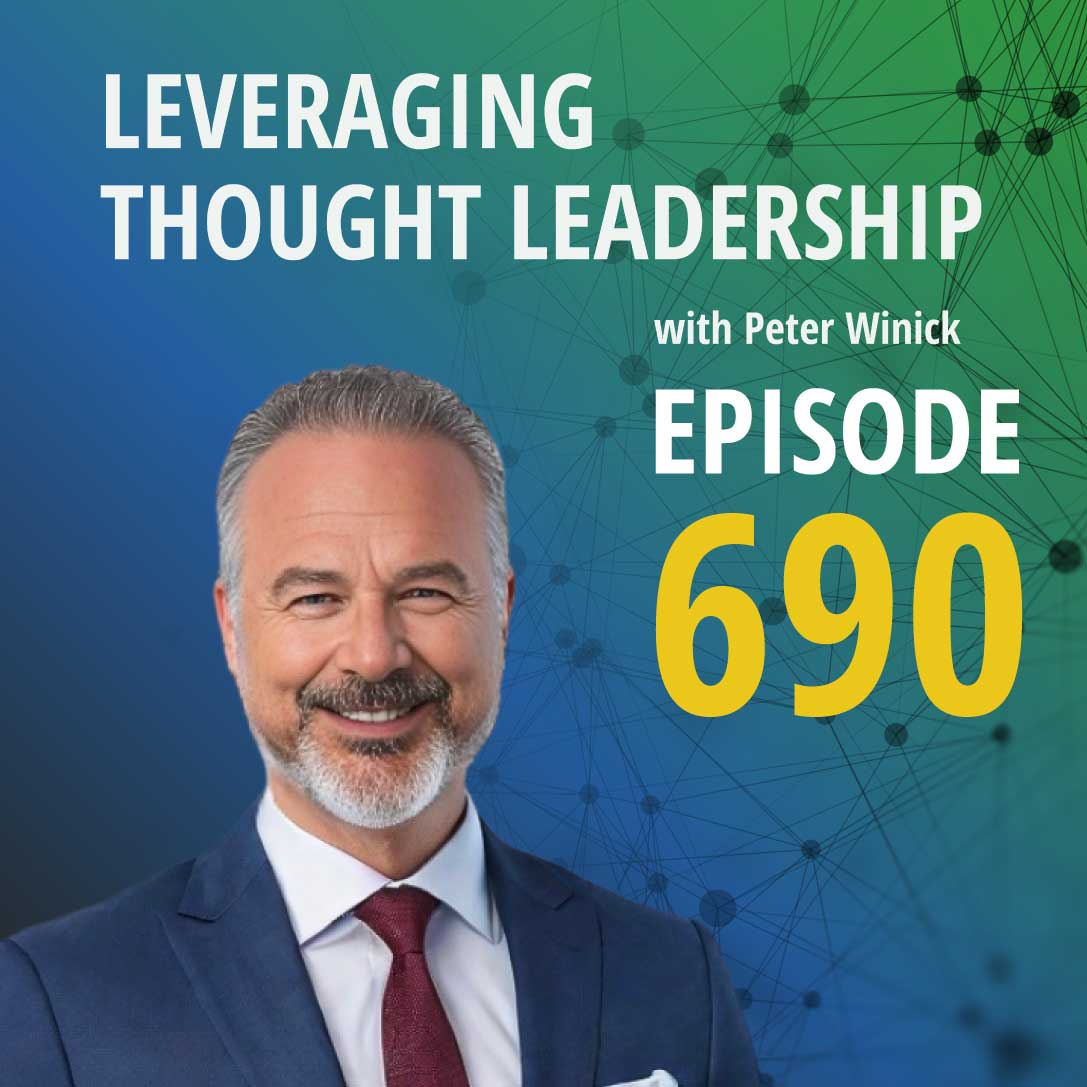

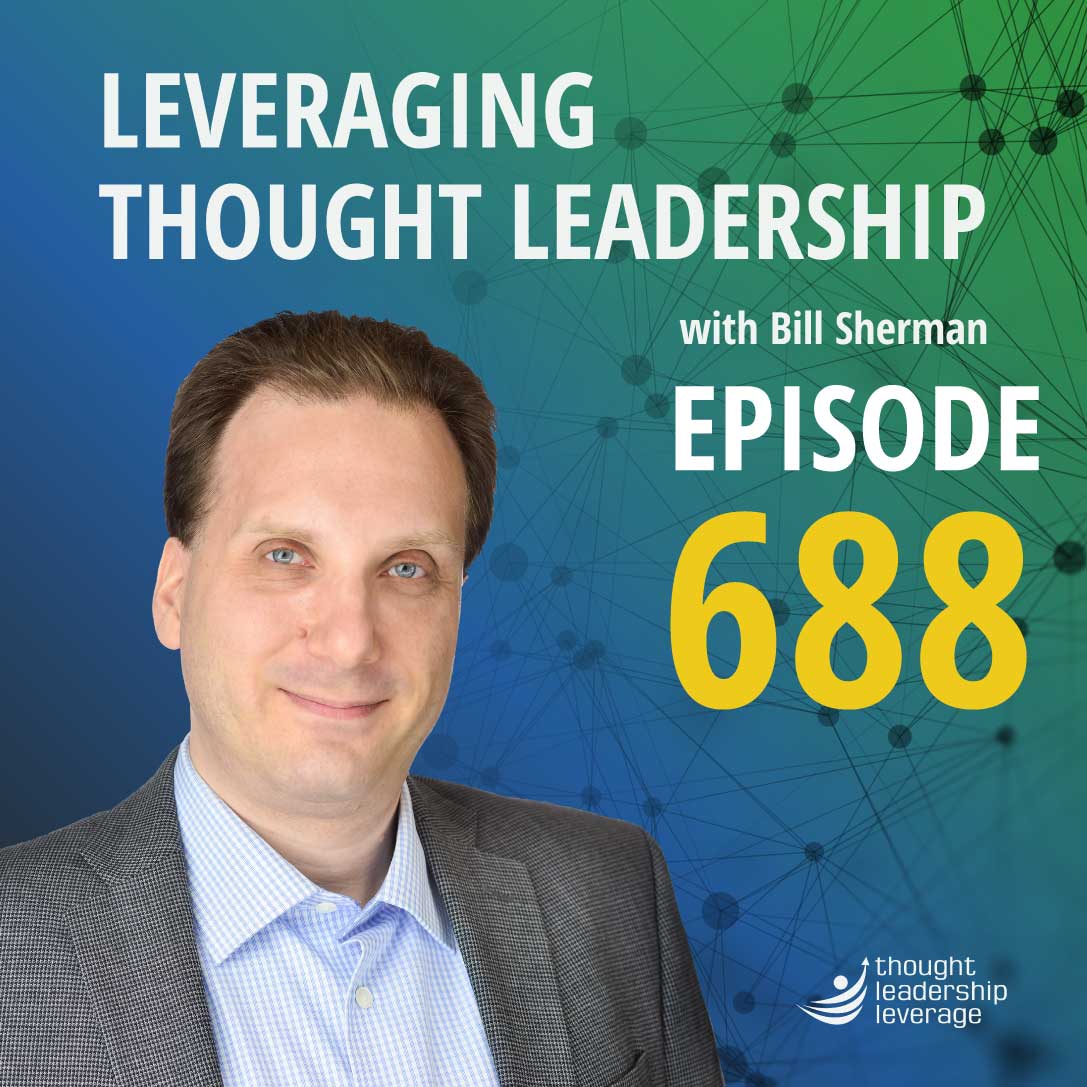
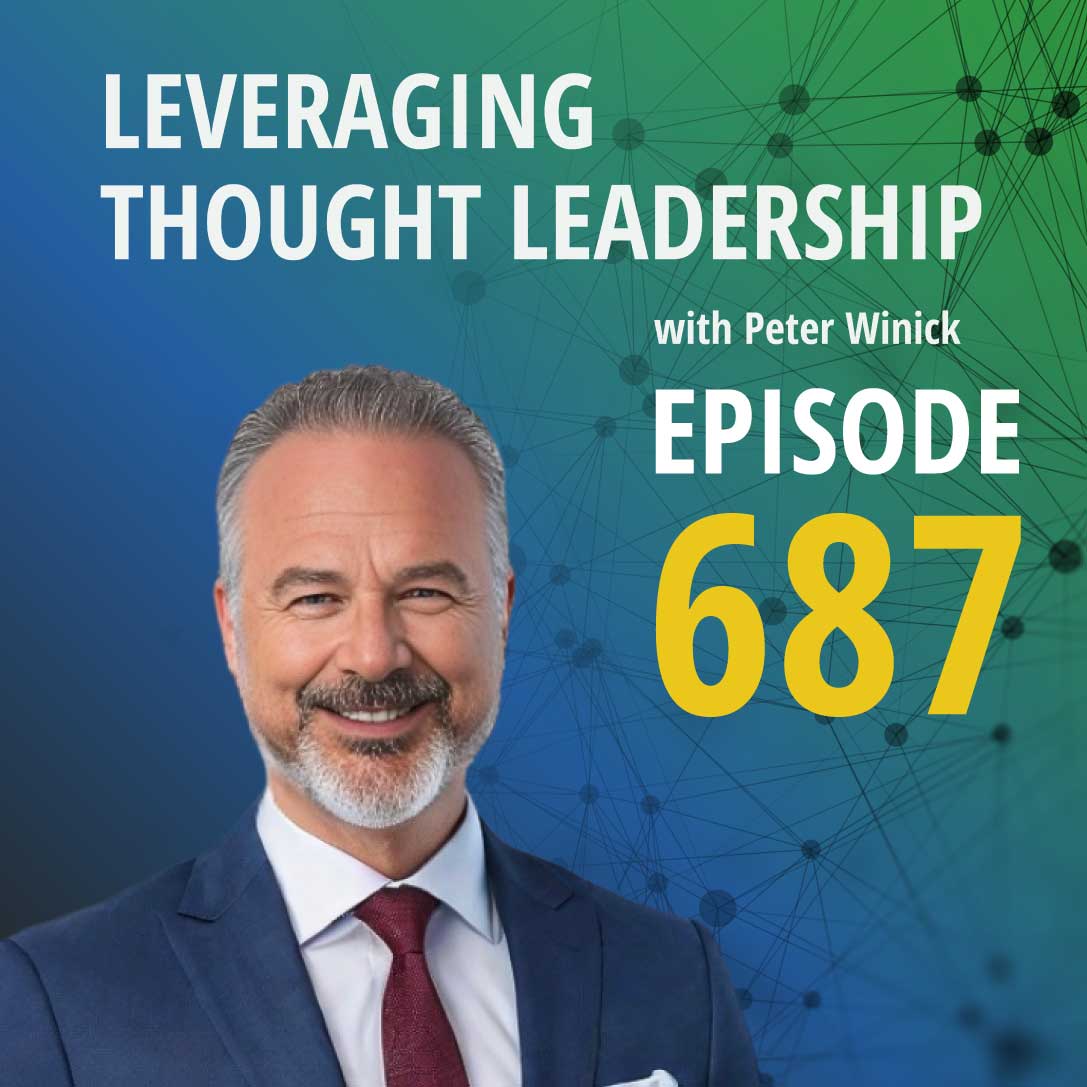
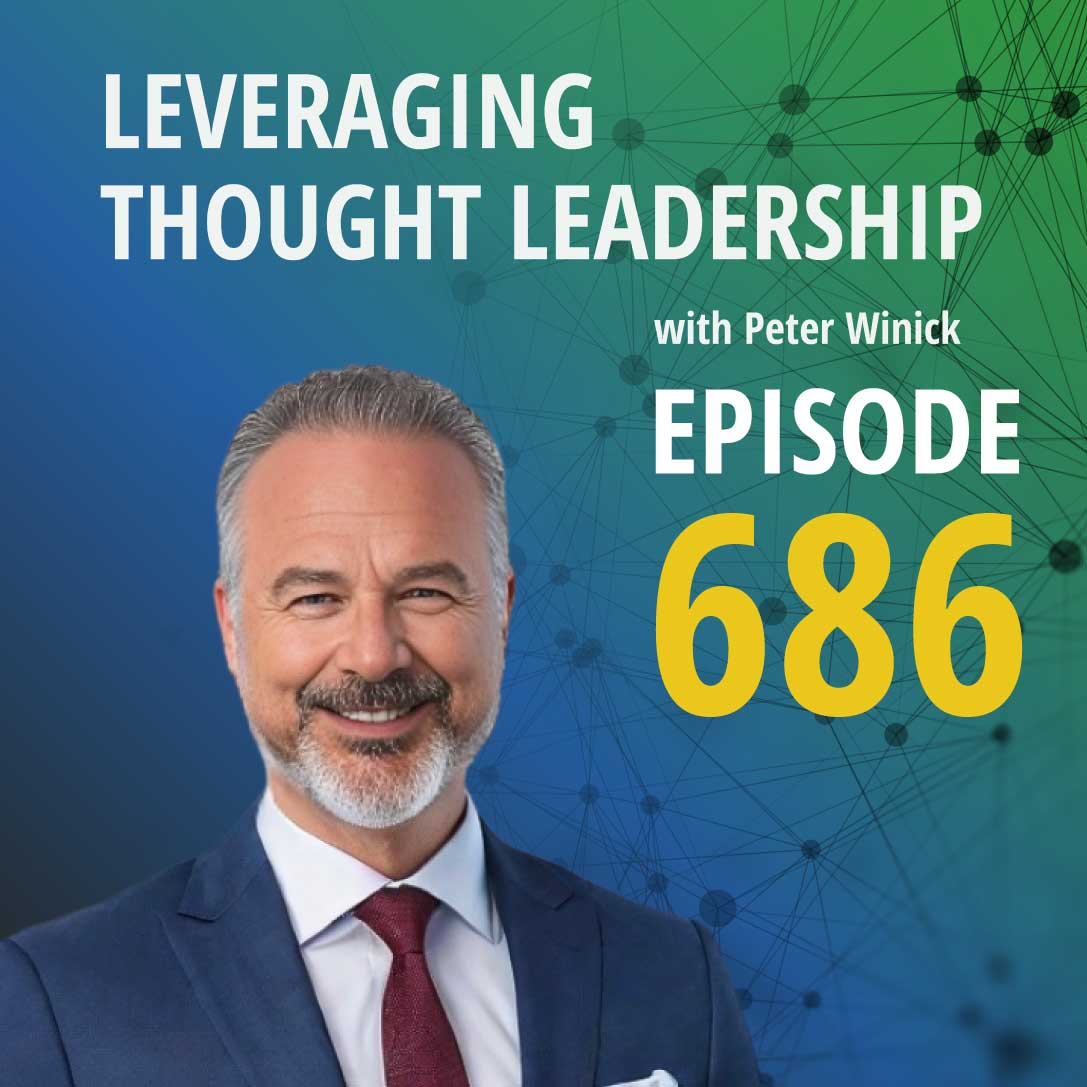
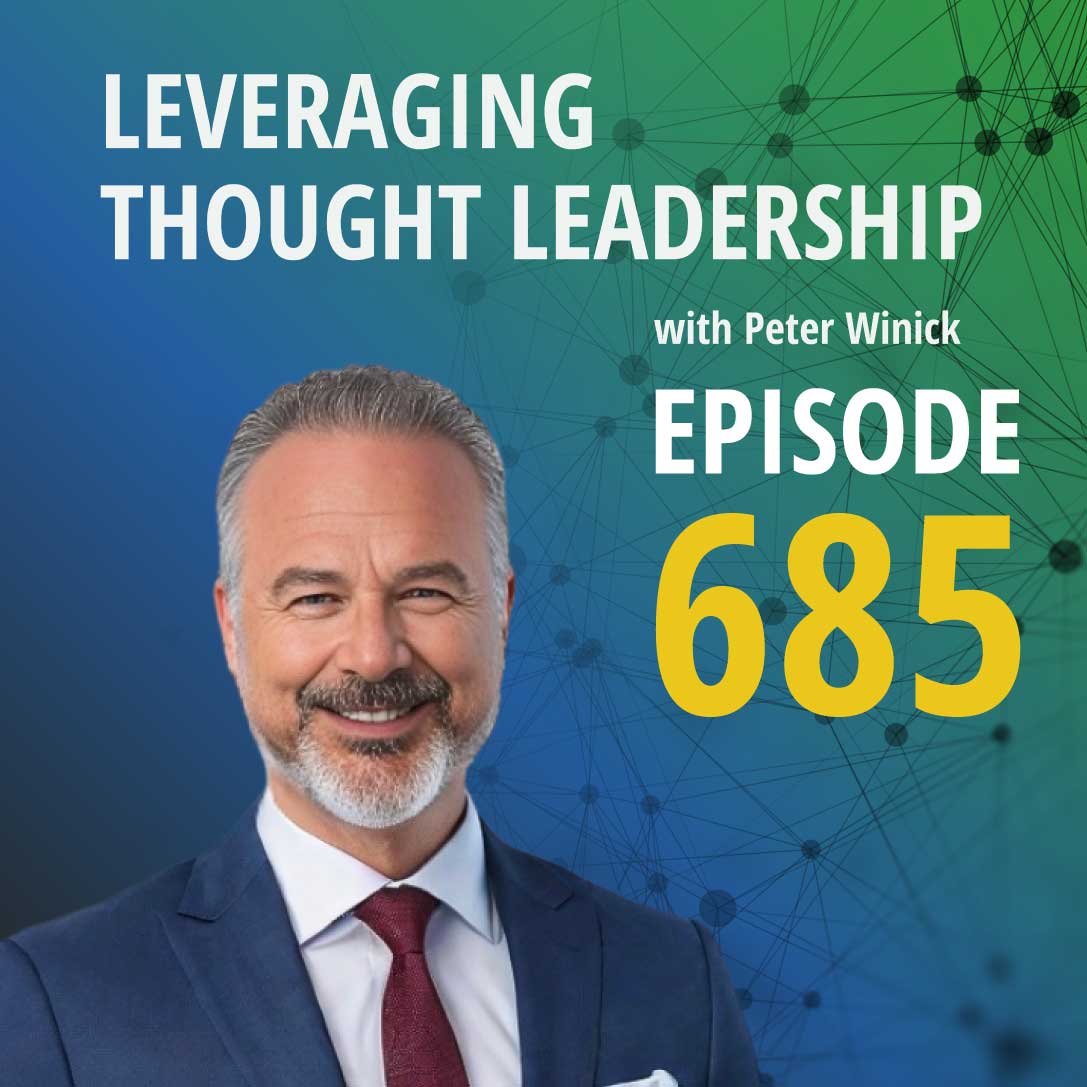
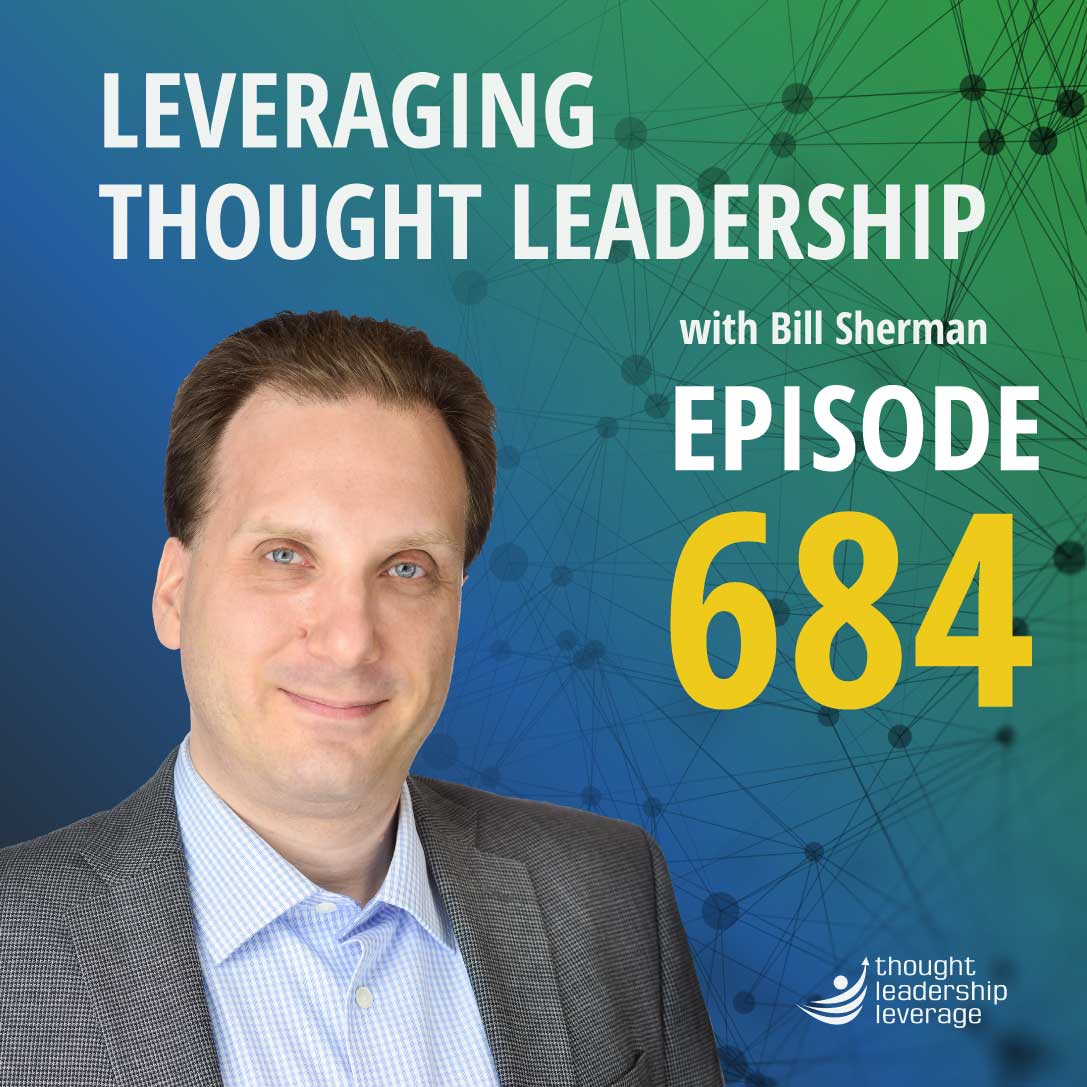


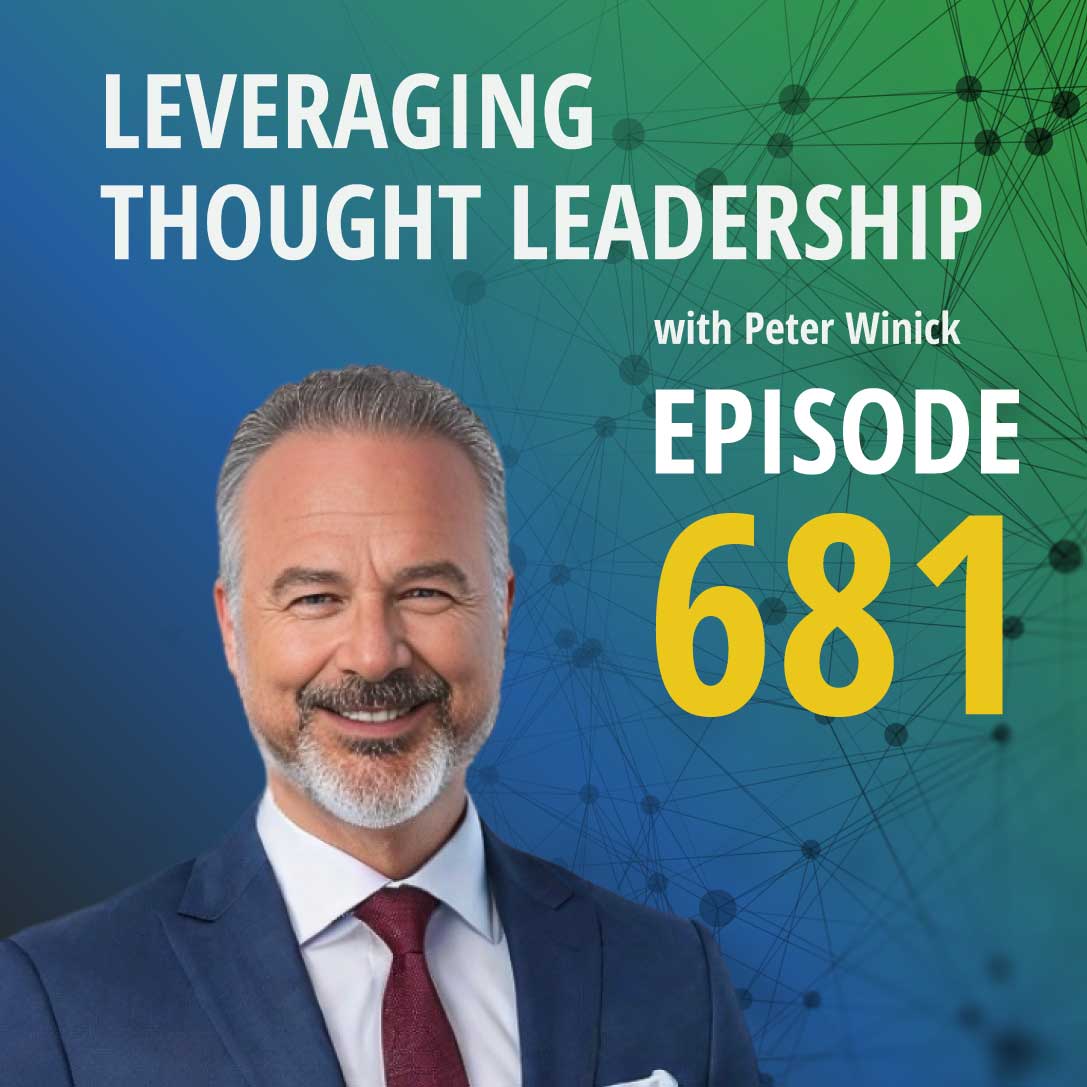
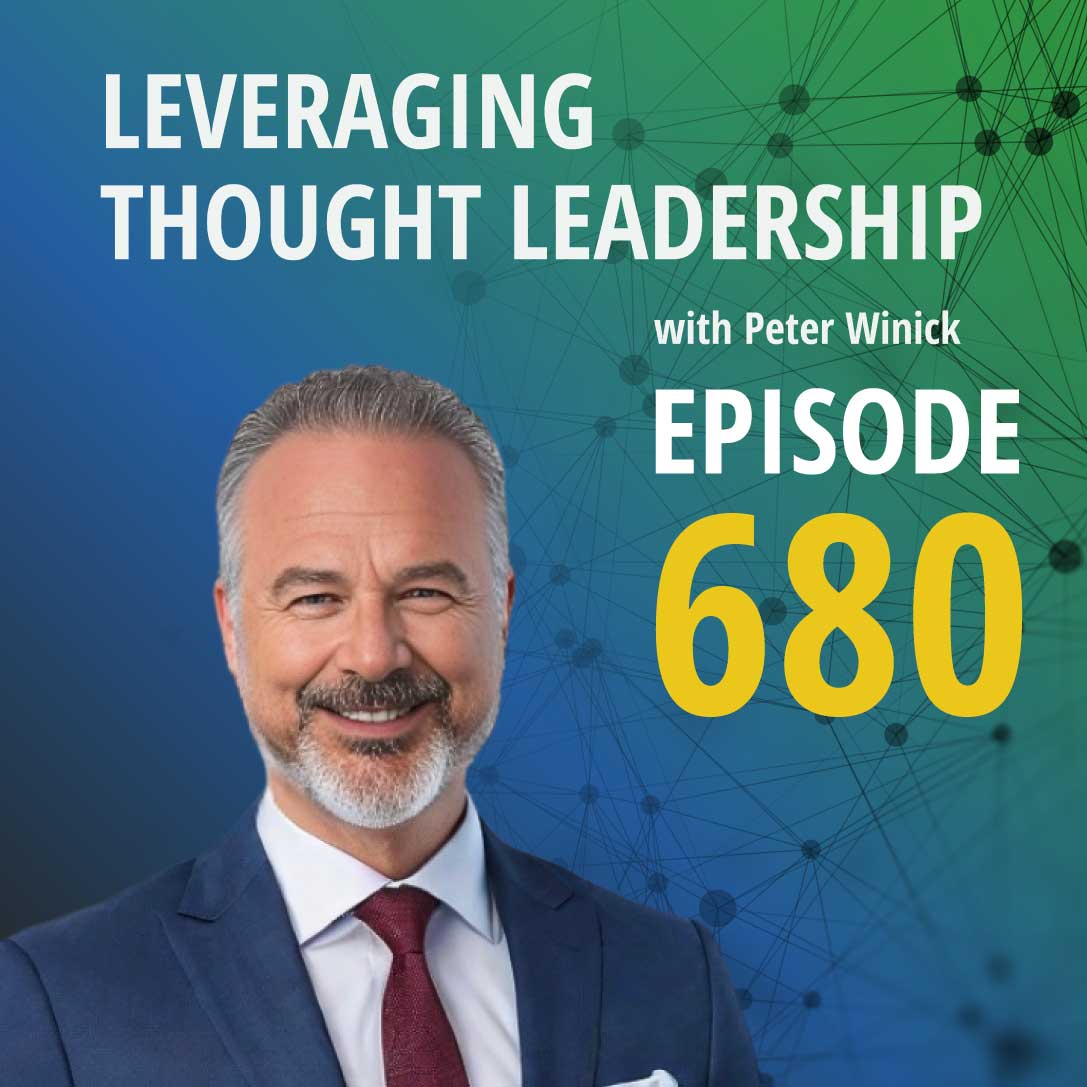
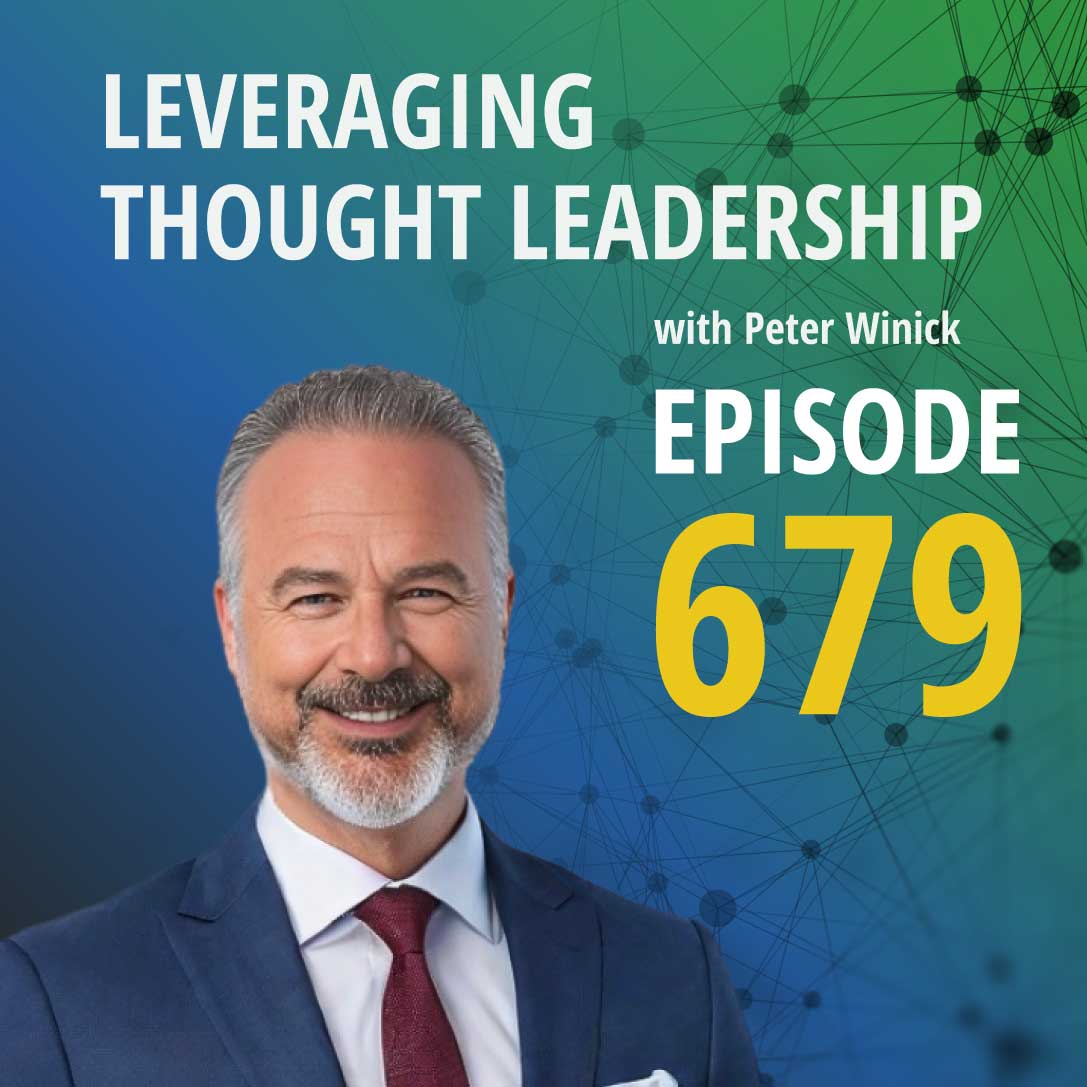
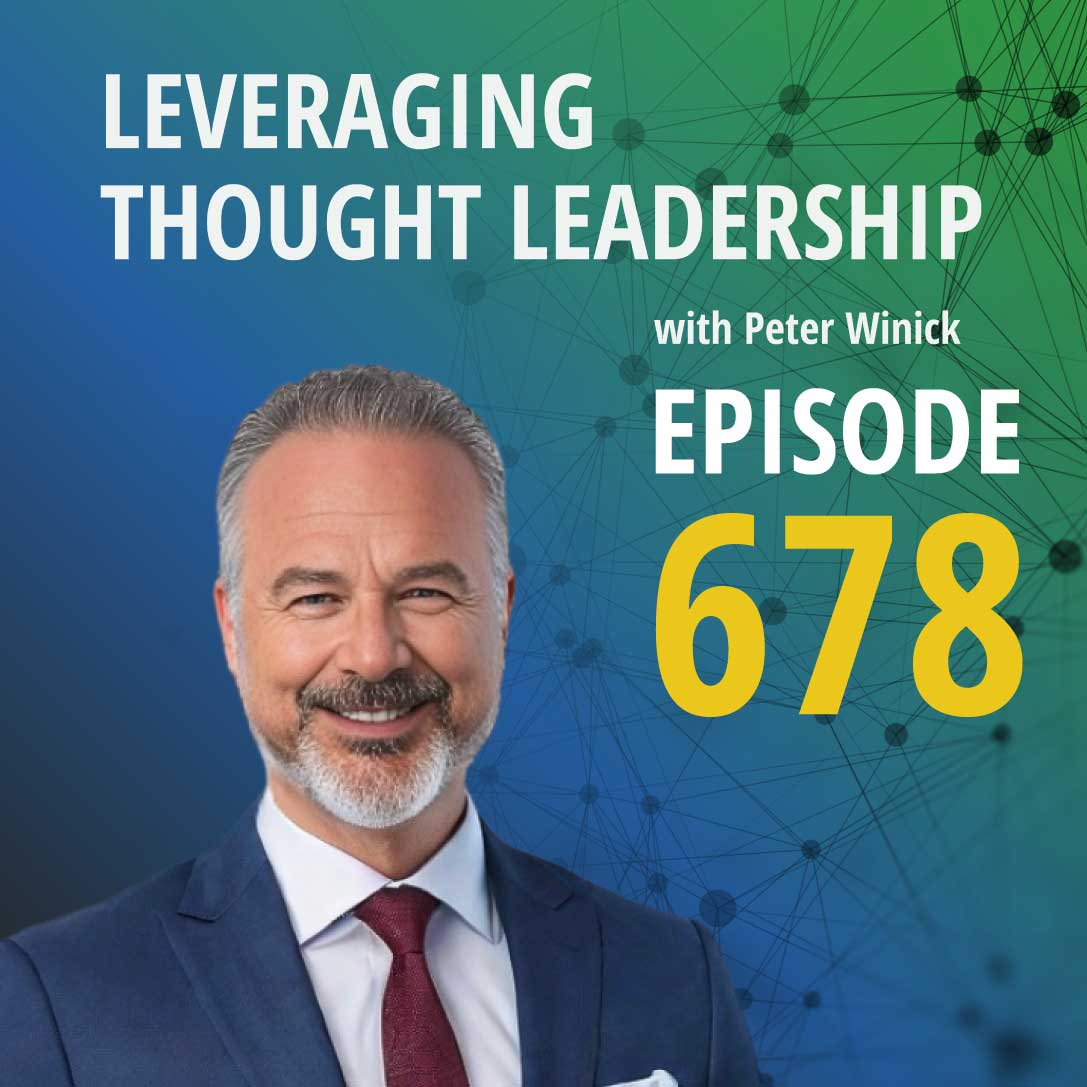
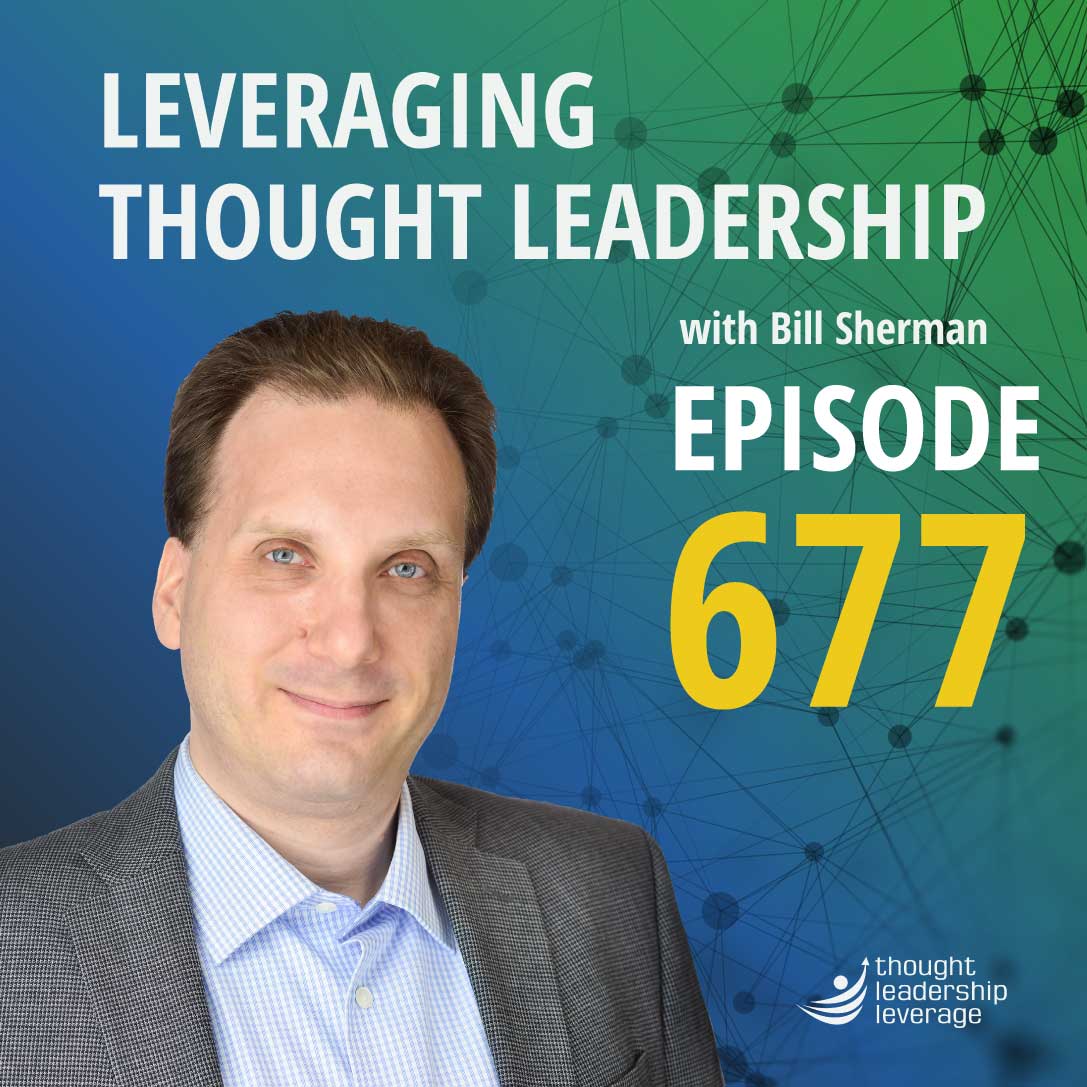
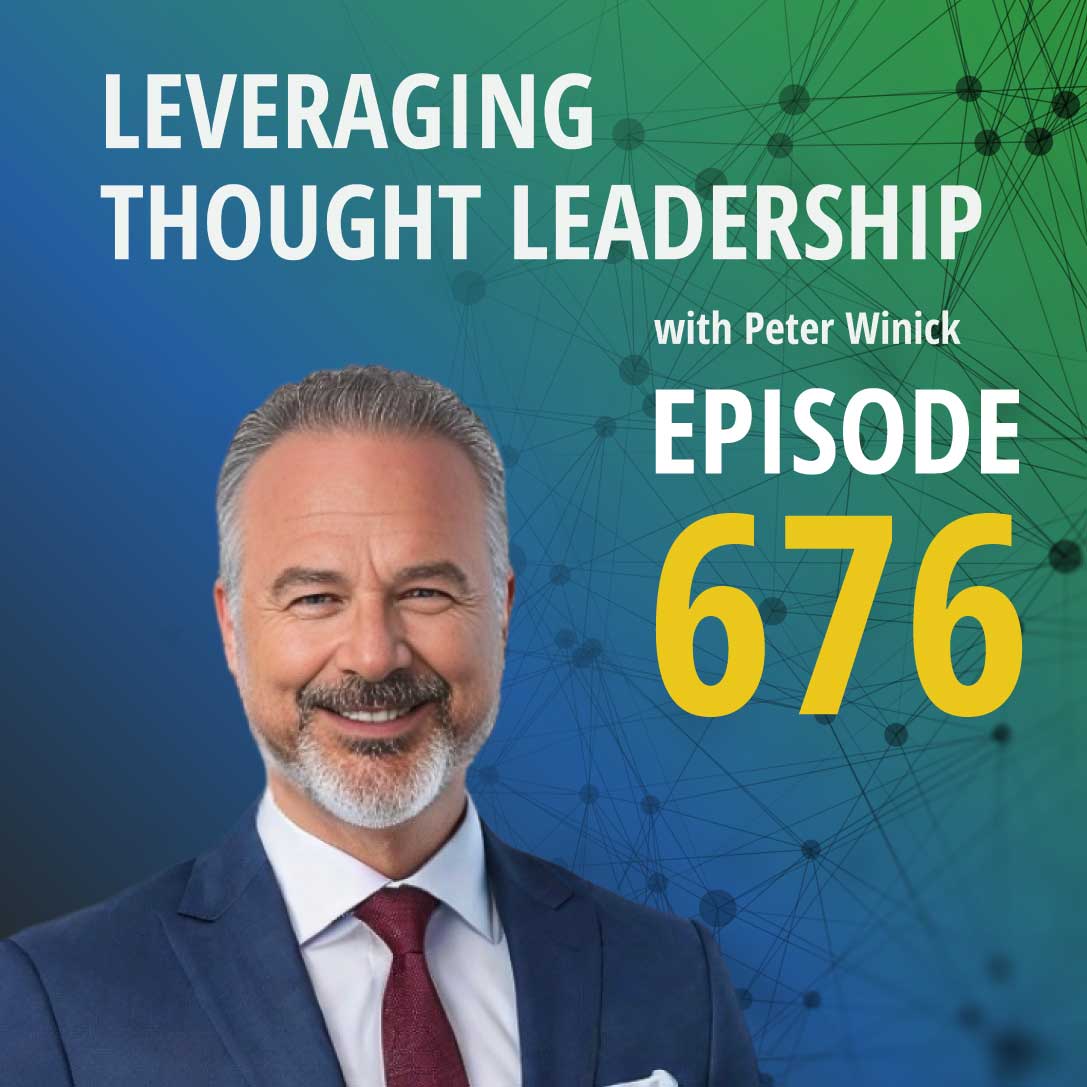
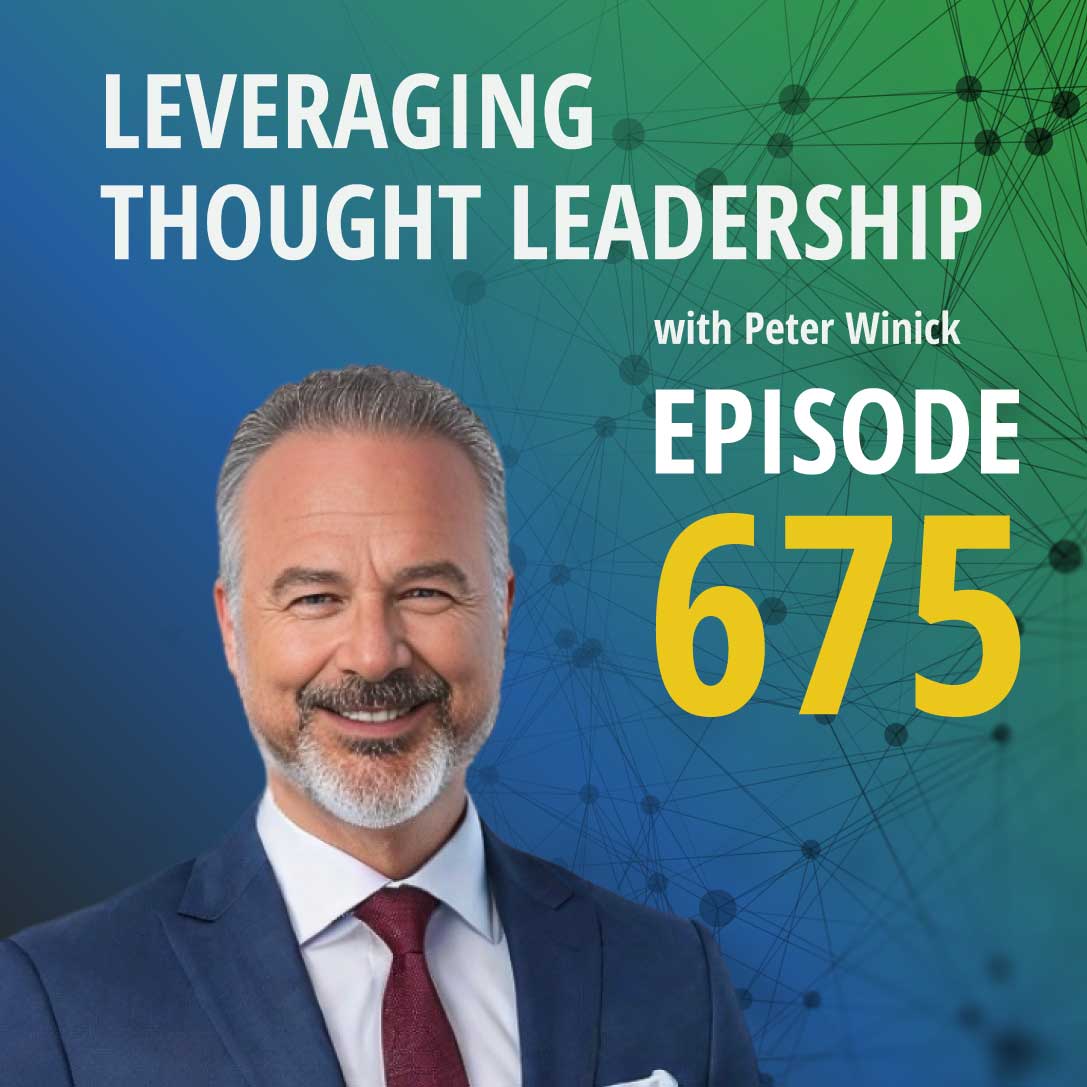
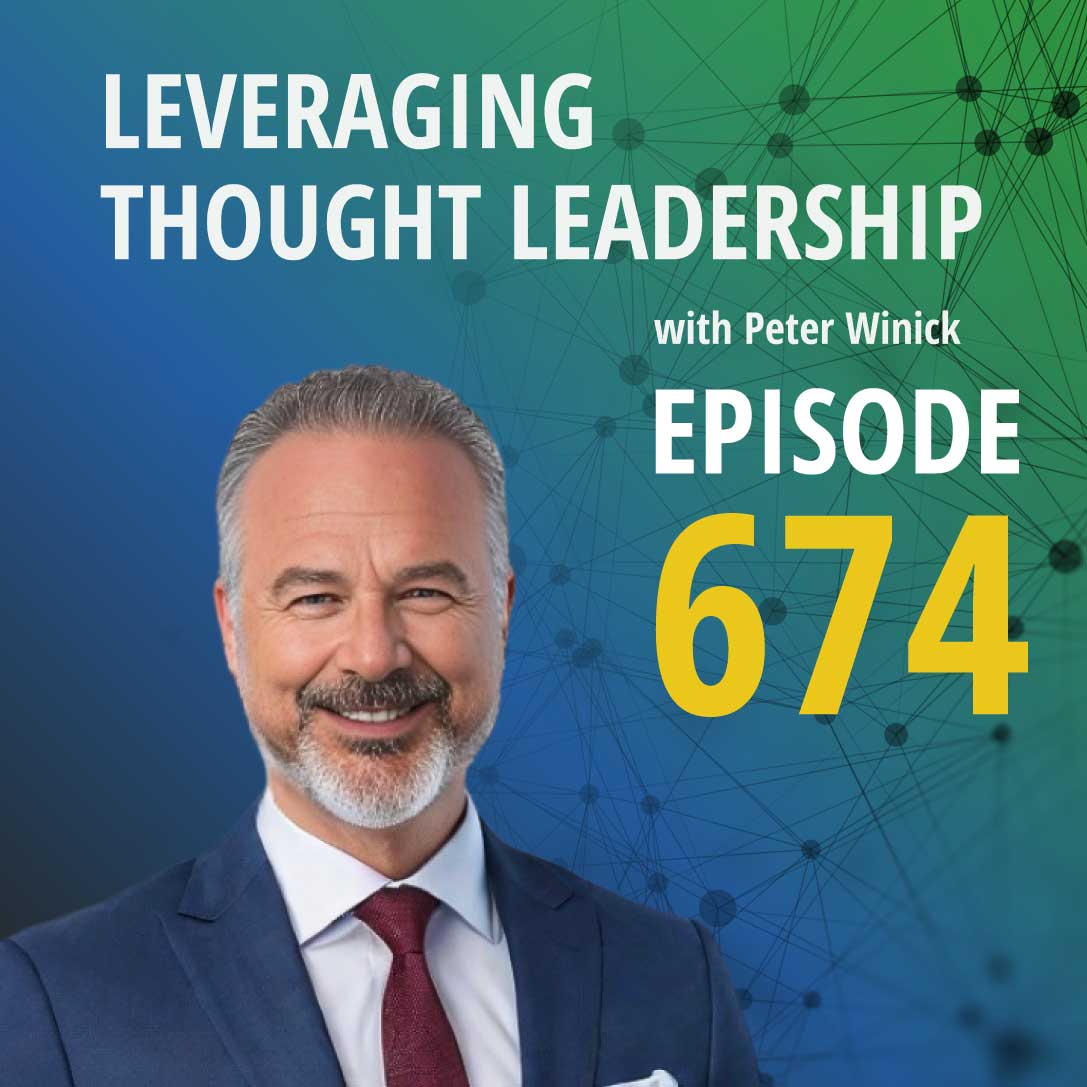
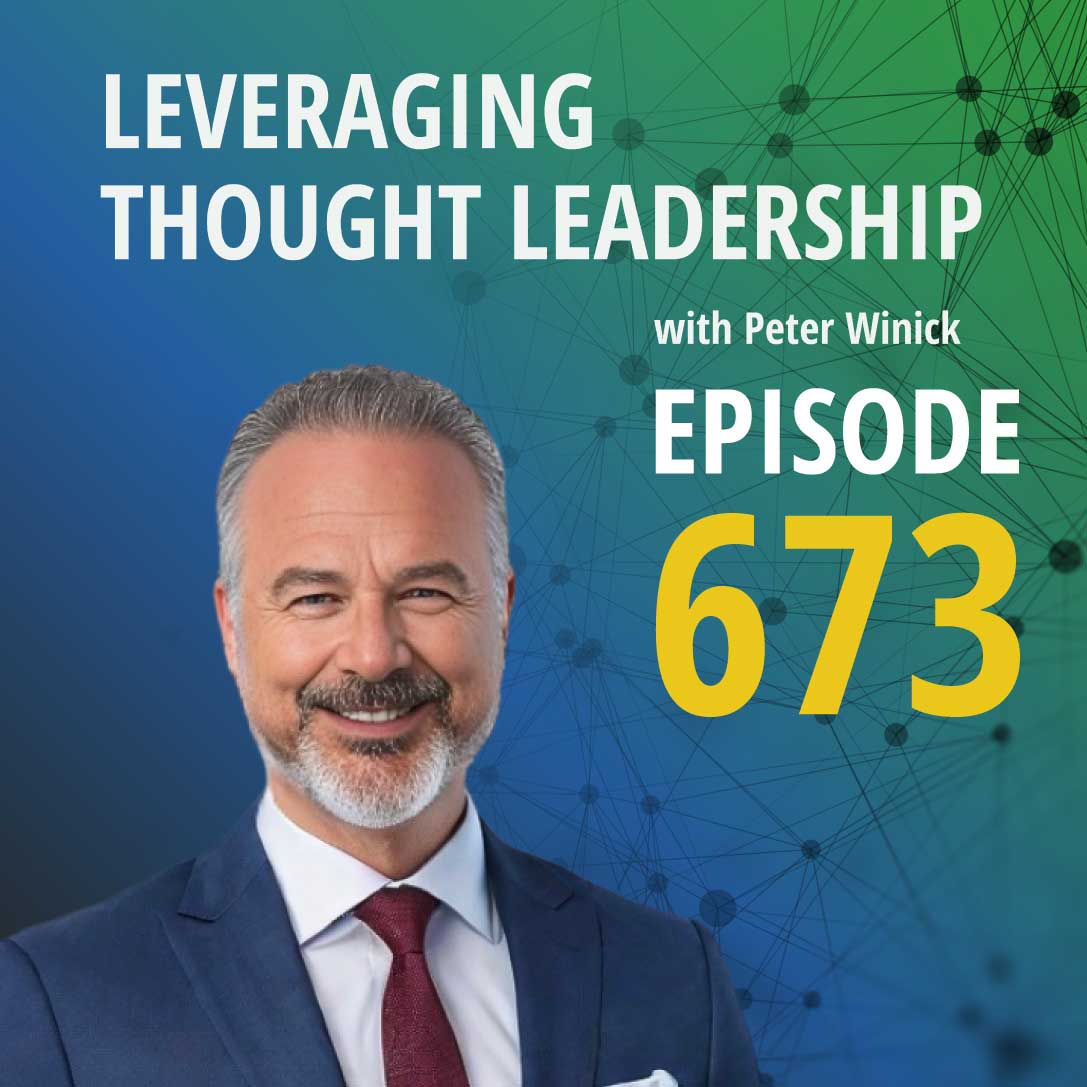
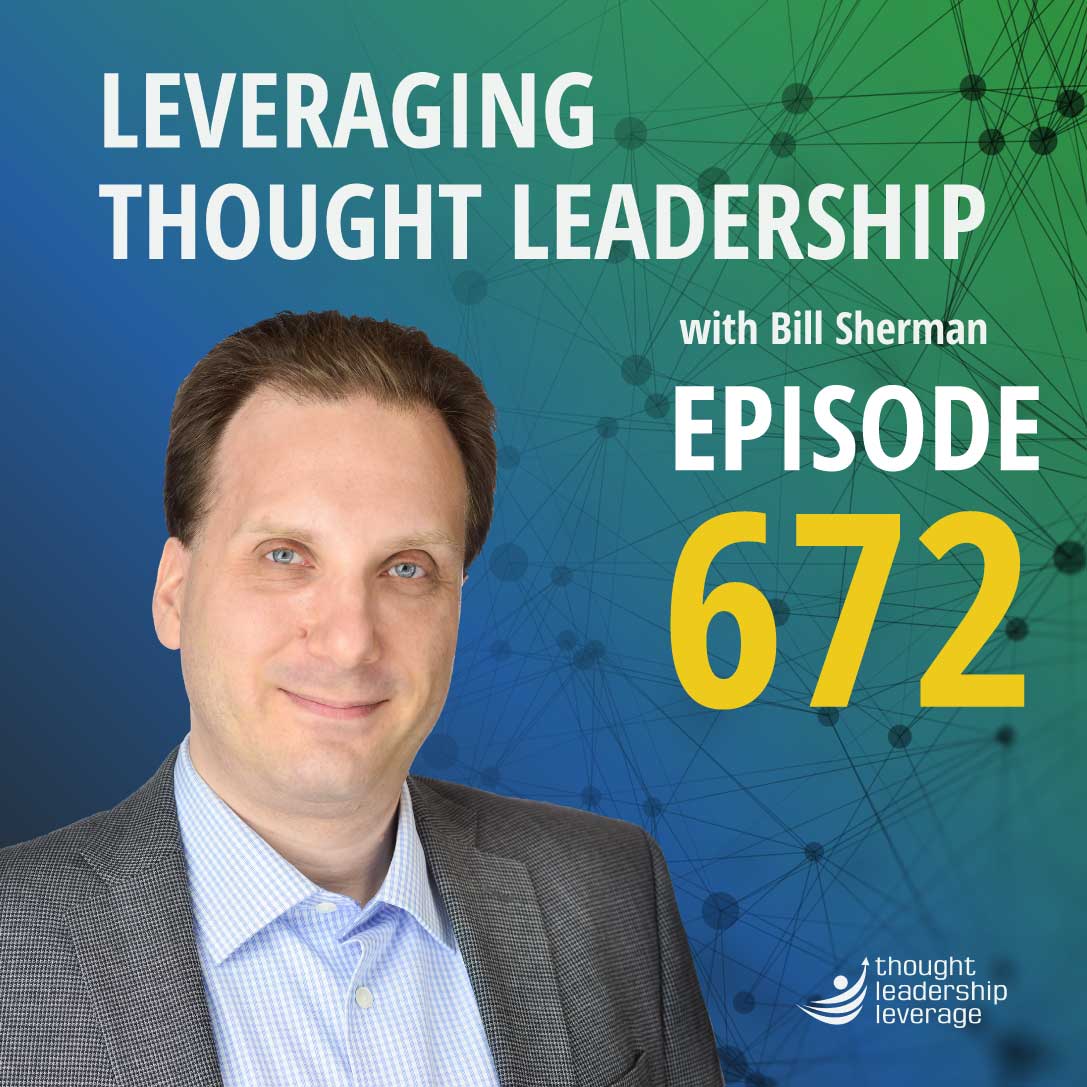



NO